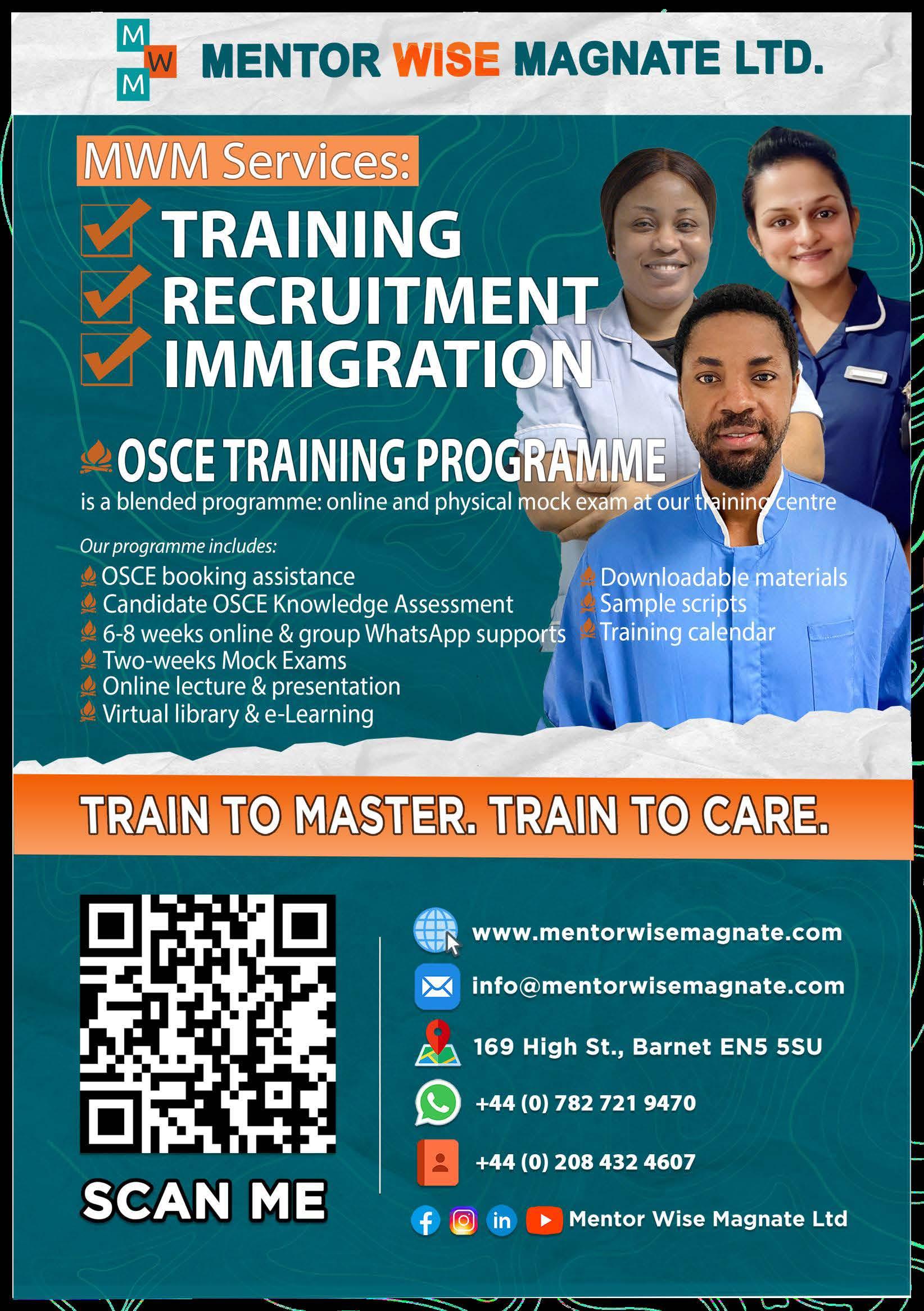&NURSING
ISSUE 105

BOSS OF CARE REGULATOR SPELLS OUT VISION FOR ‘GRIDLOCKED’ NHS

WHAT TO CONSIDER WHEN CREATING HEALTH AND WELLBEING PLANS IN THE CARE HOME
HOW TO FIX CARE’S SKILLS SHORTAGE PROBLEM



YOUR INDEPENDENT GUIDE TO THE CARE INDUSTRY
Essentials
C A RE
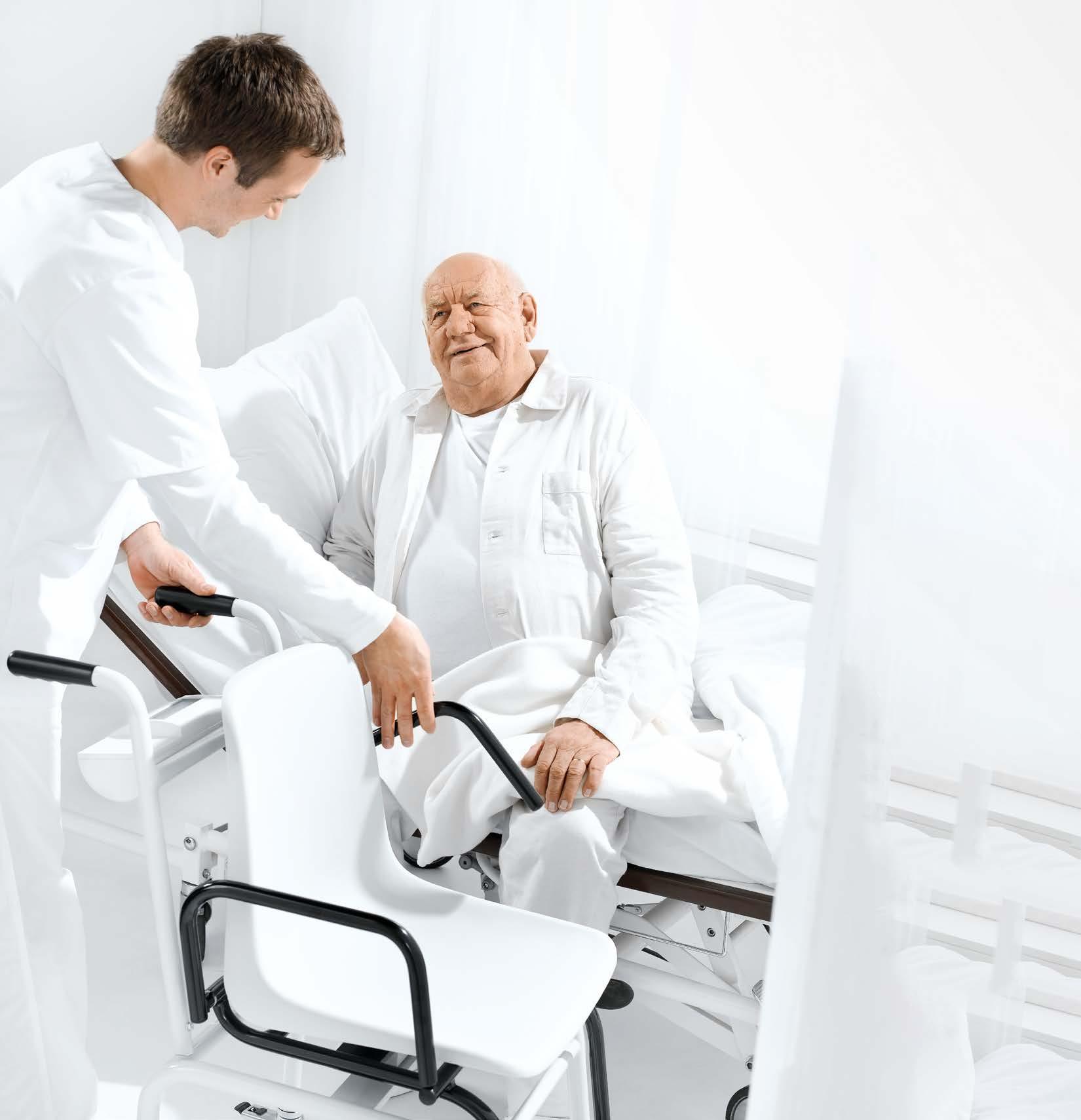
26 - 27 APRIL 2023 + ExCeL LONDON
MANAGING


SALES:

3 ISSUE 105 | WWW.CAREANDNURSING-MAGAZINE.CO.UK 4 CQC FRAMEWORK UNCERTAINTIES SHOULDN’T MASK BENEFITS OF PROCESSING STREAMLINING 6 SPOTLIGHT ON HUNTINGTON’S DISEASE CARE HOME ACCREDIATION 8 BOSS OF CARE REGULATOR SPELLS OUT VISION FOR ‘GRIDLOCKED’ NHS 10 THE RESIDENTIAL & HOME CARE SHOW 12 KEEP STAFF MORALE AND MOTIVATION HIGH AFTER RECEIVING A ‘REQUIRES IMPROVEMENT’ CQC RATING 22 ARE ‘AT HOME SENSORS’ THE ANSWER TO BRITAIN’S SOCIAL CARE CRISIS? REIMAGINING HEALTHCARE WITH CUTTING-EDGE CONNECTIVITY 28 HOW TO FIX CARE’S SKILLS SHORTAGE PROBLEM 40 WHY THE COST-OF-LIVING CRISIS IS A CRISIS FOR CARE 44 LOCAL IMPACT SERVICE EASES PRESSURE ON HOSPITALS WITH UNIQUE PALLIATIVE CARE MODEL AND 24-HOUR HELPLINE 46 WHAT TO CONSIDER WHEN CREATING HEALTH AND WELLBEING PLANS IN THE CARE HOME
CARE AND NURSING ESSENTIALS IS PUBLISHED BY EUROMEDIA ASSOCIATES
10 Ashfield Road, Chorley PR7 1LJ • Tel: 01257 267677 Fax: 01257 267711 pr@euromediaal.com • sales@euromediaal.com • www.euromediaal.com
REGULARS
LTD
DIRECTOR: Emma Hatherall PRODUCTION MANAGER: Sheila Helm
Deborah Glover: careandnursingessentials@live.co.uk
DESIGNER:
EDITOR: Nick Lavigueur: nick@euromediaal.com
Elle Creamer
& Nursing magazine
this publication
them continued
Care & Nursing
an
publication
organisation. The views expressed in Care & Nursing do not necessarily
employees. Similarly the efficacy of any products and services featured are the
manufacturer. Features 4 4 14 21 22 26 32 35 38 38 39 40 41 41 42 43 44 46 EDITOR’S LETTER NEWS & VIEWS PRODUCT SHOWCASE HYDRATION TECHNOLOGY TECHNOLOGY / SOFTWARE RECRUITMENT CLEANING & HYGIENE INCONTINENCE HEATING CATERING HEALTHCARE MANAGEMENT FINANCE REFURBISHMENT MOVING & HANDLING FIRE SAFETY TRANSPORT IMPACT SERVICE HEALTH & WELLBEING Front Cover Image: Adobe Stock Photos
DISCLAIMER Care
would like to thank the advertisers that appear in
for their support and wish
success.
is
independent
and has no affiliation with any other
reflect those of the publisher, Euromedia Associates Ltd and its
sole responsibility of the supplier /
FROM THE EDITOR
There’s never a dull moment in social care (I’m sure you’ll agree), so I’m sure you’re unsurprised that the care system has made several appearances in the mainstream news since our last edition, as politicians vow to sort it all out.
First we heard promises that the Government would fix social care, then news that care homes were going to be used to solve the winter crisis in the NHS. Now we hear that demand for social care has hit a record high but support for publicly funded care from local authorities is lower than ever as their budgets continue to be slashed by…yep, that’s right, the Government, the very same people who said they’d fix it.
Professor Martin Green OBE, Chief Executive: Care England, is particularly unimpressed with the approach by the Department of Health.
Commenting on the block booking of care home beds to ease winter pressures, he told Care & Nursing Essentials: “There is capacity within the care home sector to support people as they come out of the hospital. However, the government has made the major mistake of allowing local authorities to dictate the fee.

“That is why the policy did not work as effectively as hoped with discharge to assess and why it will not work effectively with this new money. If the government constantly repeats its mistakes, it won’t get the outcome it wants.”
Meanwhile Gordon Sanders, the owner of Runwood Homes, has apparently paid himself £21m over the last five years, while many of his homes languish with poor CQC ratings. The whole system seems pretty dysfunctional and unfair.
While the public sector is struggling, there’s a chance for the independent sector to take up the challenge to provide the compassionate care our vulnerable residents need. In this edition we will hopefully bring you some news and information that can help with that, most crucially plenty of updates about how the CQC ratings system is evolving over the next few months and news on how you can try and alleviate your recruitment headache.
CQC framework uncertainties shouldn’t mask benefits of processing streamlining


The process for establishing the new regulatory framework by the Care Quality Commission (CQC) has taken a significant step forward following the end of a pilot scheme surrounding proposed changes. Charlotte Rowe, Care Practice Manager at Markel Care Practitioners, discusses the stages and wider implications.
With the expectation that the CQC will deliver its more substantive framework by the end of the first half of 2023, there is still a great deal of uncertainty but the aims behind the changes and the structure of the future framework are now evident.
While some areas will challenge providers, a number of positives will be delivered under the new framework, with renewed flexibility within the inspection process one of the most significant.
A changing CQC inspection process
The first question providers were asking when the plans were announced was how the CQC inspection process would be affected.
Previously, the CQC assessed care services solely via onsite inspection, gathering all the evidence through visits alone. Under the new model, the commission is moving to a broader, continuous approach by collecting evidence on an ongoing basis.
Routine inspections will remain key, but other methods will now assume real importance to the final outcome including submissions from providers and conversations with managers.
Inspectors will look to
incorporate people’s experiences and obtain more detailed feedback from staff and leaders. They will include observations of care, and the outcomes of care set against evidence of process. In addition, they will seek feedback from partners.
The CQC will now be able to update a service’s rating at any time without onsite inspection in order to better respond to risk.
The frequency of care inspections was previously based on a provider’s most recent rating (with some ongoing monitoring), a system which troubled providers with many feeling it was difficult to improve their rating.
That looks to be addressed in the new framework. The new continuous approach increases flexibility and frequency, enabling commissioners and stakeholders to be presented with a more accurate assessment of the quality of care provided. Reports will also be shorter and score-based, making outcomes easier to digest.
The ability to grade in a more reflective manner is also of real importance. It will benefit families of service users to have more updated information on the standards, quality and concerns relevant to the provider. For families this is a real positive, and will likely act to support relationships with stakeholders.
4 ISSUE 105 | WWW.CAREANDNURSING-MAGAZINE.CO.UK EDITOR’S LETTER A WORD
07969 110723 Your Commercial Kitchen and Laundry Equipment Experts sales@ckls.co.uk
Single assessment framework
One of the most important changes is the CQC’s move to a single assessment framework – a strategy that was first introduced in 2021 with the aim of putting the emphasis on care integration, people’s experiences, cultures of safety and learning.
Previously, there were different frameworks for the type of service being administered – e.g. hospital care vs adult social care – and for registration and inspection.
The main change with the single framework is to move away from the CQC’s Key Lines of Enquiry (KLOE) to quality statements which providers will now be measured against. This is intended to remove duplication and complexity by setting out one set of overall expectations that apply universally.
Building in greater clarity

The CQC has recognised the need for clarity on the changes, how they will be implemented and any variations in the requirements from providers.
To help understand the new single assessment framework, the CQC has illustrated it using a pyramid, which reduces 300 lines of enquiry down to 34 quality statements.
Moving down in chronological order, the top of the pyramid focuses on the ‘five key questions’, which ask whether a care service is safe; effective; caring; responsible; and well-led. These remain the same as before.
The next step down is quality statements, also known as ‘we statements’. These are examples of behaviours and actions that reflect the five key questions at the top of the pyramid and are designed to keep the focus on ‘high-quality, person-centred care.’
The bottom two levels of the pyramid refer to the evidence-gathering stage, with the latter stage more bespoke and specific.
The aim of the single framework is to better streamline the process. The CQC hopes this streamlining will also improve waiting times for results – something that has caused concern in the past. Waiting times
have also caused issues for providers hoping to improve their gradings – impacting their status with commissioners and stakeholders.
The importance of data
There will now be far more reliance on data. For providers that are not data ready this could be a real challenge, especially where paper based systems remain in play. This is particularly important for areas such as nursing staff, where changes in recording and systems are a key part of their daily undertaking.

The CQC aims to use data more effectively via a range of audit tools in order to simplify the process, tailoring its assessment to different services and to have one framework. The sector should welcome the use of technology and data to streamline what has always been a complex and often subjective process. The ability for changes made by the providers to address any issues identified in an inspection and have the capability for those changes to be recognised in their rating is a significant plus.
Rolling out the changes
The CQC has been open in its process for the implementation of the new framework. Since the change in approach was first announced a year ago, the timetable towards its wider rollout has been explicit.
Last August, the CQC began rolling out various elements of the new framework to a select group of early adopters. The first group to be invited comprised home carers who had not yet engaged with the CQC’s registration process.
In September, we saw the number of early adopters expanded to include some GP practices, independent providers, and care homes.
October saw the CQC begin carrying out its first assessments using its new approach, again with a small group of early adopters and new services registering.
The early adopter pilot schemes closed at the end of 2022, and the CQC released an interim report in the days before Christmas slightly delaying the full rollout to later in 2023.
The revised schedule aims to have the technology in place by this spring and the updated policy ready for launch. The new online provider portal will launch in the summer. Assessments will be carried out in the new way towards the end of the year.
We are likely to see greater regulation of Local Authorities with the CQC likely to focus on providers in areas where the LA is failing. Previously LA’s have not been inspected so this is something new that could have major implications. Providers are already feeling the effects of LAs preparing for this change.
The CQC is taking an iterative approach to these changes, and we don’t yet have all the details, leaving some providers unsure about how best to prepare.
While the process of CQC inspections will be streamlined the devil is all too often in the detail and the results of the pilot schemes and any changes to the approach from the CQC which arise will need to be carefully considered in the months to come.
Markel is already supporting clients with preparation, and we’ll be providing guidance on the new process every step of the way.
https://uk.markel.com/ services/markel-carepractitioners

5 ISSUE 105 | WWW.CAREANDNURSING-MAGAZINE.CO.UK NEWS & VIEWS
07969 110723 Your Commercial Kitchen and Laundry Equipment Experts sales@ckls.co.uk
Charlotte Rowe - Care Practice Manager, Markel Care Practitioners, Credit: Markel UK
Spotlight on Huntingdon’s Disease care home accreditation
Case Study
Kavanagh Place is part of Exemplar Health Care, a specialist care provider that has over 35 care homes across Yorkshire, the Midlands, the North West and North East.

The home supports adults living with complex and high acuity needs. It has recently been awarded the HDA Quality Assured tick after going through a rigorous process to meet the standards to pass the accreditation.
The judging process saw HDA officials and an independent assessor spend time at the home.
Kiri Houghton, Home Manager at Kavanagh Place, which is rated ‘Good’ by the CQC, said:

Care home operators are being encouraged to apply for Quality Assured Status from the Huntingdon’s Disease Association (HDA). The accreditation is a quality assurance programme that identifies the behaviours, cultures and specialist services required for a care home to specialise in caring for people living with Huntington’s disease - a degenerative brain disease that can affect movement, cognition (perception, awareness, thinking, judgement) and mental health.
Care Home Accreditation
The care home accreditation scheme, Quality Assured, was developed out of discussions and feedback from families, professionals and other stakeholders within the Huntington’s disease community, who identified a common set of issues which could be tackled through accreditation.
Caring for someone with Huntington’s requires a specialist approach, including adjustments to ensure that the appropriate and highest standards of specialist care is provided.
Choosing a care home that meets assessed needs and future care requirements is one of the most challenging decisions that a person, family or carer may have to make. This is particularly true
if the person has Huntington’s disease due to the additional needs this complex condition brings.
Accreditation identifies standards of care for people living with Huntington’s disease and ensures that care homes are consistently meeting these standards. The benefits of accreditation for people with Huntington’s, their families, caregivers and care homes are outlined below:
Patients, families and caregivers
• Improved information and support for those choosing a care home
• Improved experiences of those choosing a care home
• Improved outcomes for those who reside within care homes
• Increased reassurance for families and caregivers
Care homes
• Increased recognition for those care homes who invest in Huntington’s disease as a specialism
• Increased specialism and expertise in supporting people with Huntington’s in care homes
• Ongoing service development through continuous improvement
• Increased Huntington’s disease focus and specialism within care homes
• A recognised benchmark of quality


“We’re absolutely delighted that the home is Quality Assured by the Huntington’s Disease Association.
“Our team is committed to providing the highest quality of care for our service users who are living with Huntington’s disease, and supporting their families. We’re proud that this has been acknowledged by the national charity.
“The Quality Assured tick is a testament to the dedication and hard work of the outstanding team we have here at Kavanagh Place.”
Helen Santini, Team Leader, Advisory Service, Huntington’s Disease Association
“We are delighted that Kavanagh Place is the latest care home to receive Quality Assured accredited status from the Huntington’s Disease Association.
“The evidence appeared clear that Kavanagh solidly and consistently met all standards. It was impressive to see what was happening across all the areas of care that were considered.
“Residents at Kavanagh Place were supported by knowledgeable staff who were clearly going the extra mile to support people with Huntington’s disease and we congratulate them on their accreditation!”
6 ISSUE 105 | WWW.CAREANDNURSING-MAGAZINE.CO.UK NEWS & VIEWS
Kavanagh Place in Liverpool has received the HDA Quality Assured tick. Credit: Exemplar Health Care
07969 110723 Your Commercial Kitchen and Laundry Equipment Experts sales@ckls.co.uk
Helen Santini - Team Leader, Advisory Service, Huntington’s Disease Association
GLASGOW | 18TH APRIL 2023
BIRMINGHAM |
LIVERPOOL |
LONDON |
CARDIFF |
23RD MAY 2023
25TH MAY 2023
17TH OCTOBER 2023
14TH NOVEMBER 2023
DO YOU WORK IN CARE?
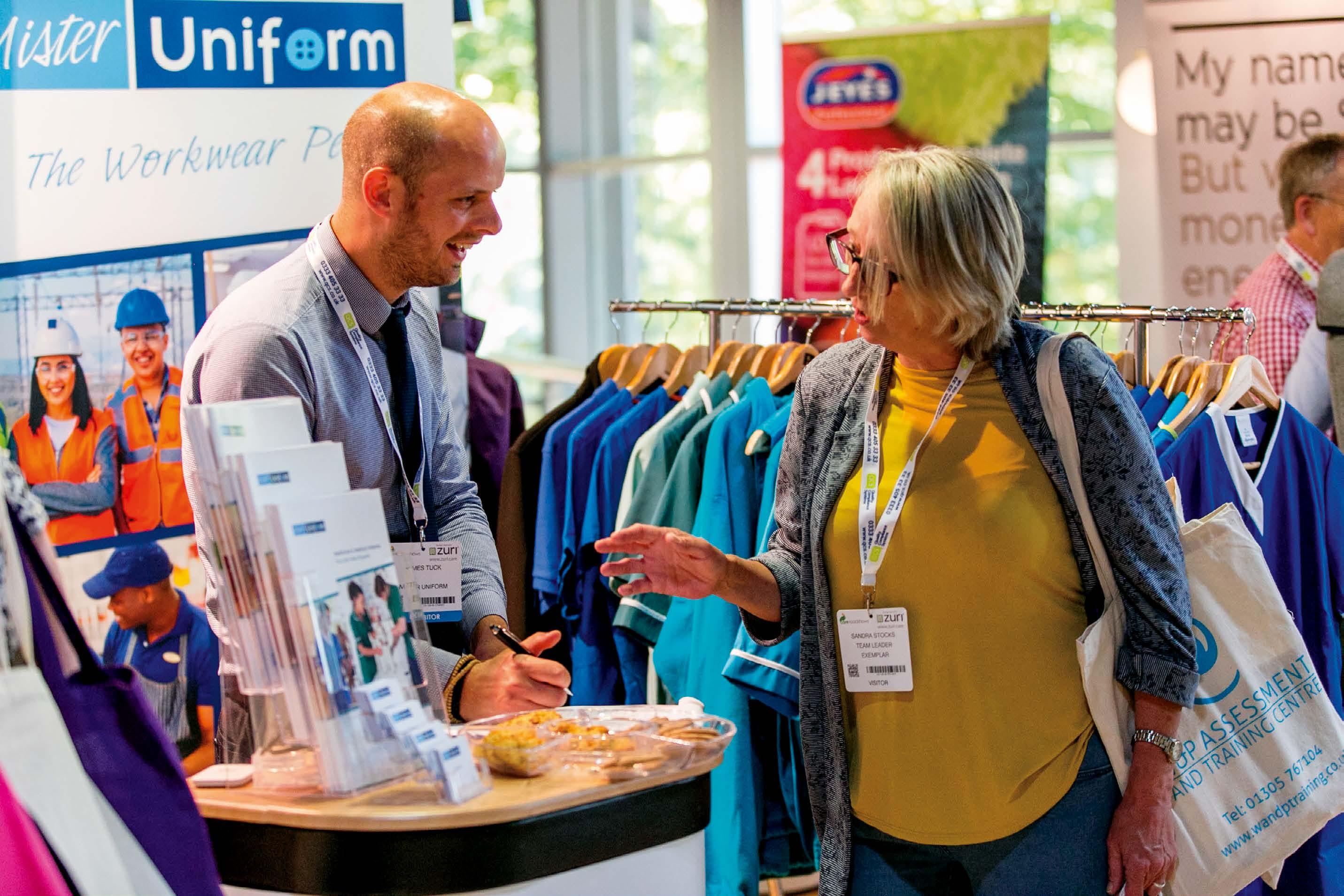
SHOW FEATURES
SEMINARS & PANELS
LOCAL NETWORKING

EXHIBITION
MEET CQC & CARE
INSPECTORATE
BOOK YOUR FREE TICKET HERE
7 ISSUE 105 | WWW.CAREANDNURSING-MAGAZINE.CO.UK E
OR AT WWW.CAREROADSHOWS.CO.UK
Boss of care regulator spells out vision for ‘gridlocked’ NHS
The country’s health and social care system is in “gridlock, which is harming patients and can only be fixed by long-term funding and technology-driven innovations such as the roll-out of virtual wards.

These are the views expressed by Ian Trenholm, the chief executive of the Care Quality Commission, in a stark interview with Newcross Healthcare’s Voices of Care podcast.

Spelling out some of the pressures facing the sector - in particular care homes - and outlining ways the situation could be improved, he said:
• ‘Exhausted’ care staff need better pay and conditions
• More long-term government funding is needed
• The regulator needs to change its vision and increasingly highlight good work

• ‘Virtual wards’ should be rolled out to ease pressure on NHS
• The new Integrated Care Systems (ICS) needs to ensure NHS services gets better at working together
The CQC’s ‘State of Care’ report has described the health system as under intense pressure caused by 165,000 vacancies in social care and 133,000 in the NHS. On the impact of this, Mr Trenholm said: “Increasingly what we’re seeing is the backlogs, the delays are causing people harm and that’s because the system is gridlocked. People are stuck. They’re stuck in an ambulance waiting to go into a hospital because there are no beds. They’re stuck in hospital because they can’t get out, because they need some sort of social
care. And that is going to mean that people will ultimately come to harm.
“To a large extent that’s because there’s been some historic underfunding in social care in particular and the story around social care definitely improved over the COVID period, people have understood the vital role that social care plays in the system as a whole. But we find that still needs investment, so the fact that the public widely understands social care doesn’t mean any more money is really going into social care and that historic underfunding is problematic.
“And then you overlay that with workforce, you overlay that with the geopolitics of today, the costs of goods and services, the cost of power, a very globally mobile health and care workforce. There’s a number of things that have come together now which I think I would agree means that this is one of the most difficult times the health and care system has ever faced.”
Mr Trenholm highlighted ‘virtual wards’ as a positive example of ways that hospital admissions can be reduced and pressure on the system can be eased. These see patients remain at home and are given the advice and monitoring
they need via computers and other technology.
He said:“I saw an example recently in Newcastle where ironically, as part of Covid, they had decided that bringing immunocompromised cancer patients into a hospital, which was full of people with Covid was not a good idea. But equally they couldn’t turn off their chemotherapy.
“They created approaches, they created control rooms, and they invested in bits of kit and so forth to enable people to have chemotherapy at home be monitored remotely, make sure they could reach into their homes and very quickly give people support if they needed it. The patients liked it. The patients were having better outcomes because they weren’t sitting in a ward all of the time and it was one of those things that Covid forced a new way of thinking.
“It did require quite a lot of effort. But it’s a really good example of a completely different way of delivering care, which was traditionally hospital
8 ISSUE 105 | WWW.CAREANDNURSING-MAGAZINE.CO.UK NEWS & VIEWS
07969 110723 Your Commercial Kitchen and Laundry Equipment Experts sales@ckls.co.uk
Ian Trenholm - Chief Executive, Care Quality Commission
care but using community resources.”
Mr Trenholm told of his fears that the ongoing industrial action across the NHS was only exacerbating the situation, saying: “If people are going on strike, there’s fewer people at work, meaning that procedures are being cancelled. That leads to more delays. So, the strikes are not a good thing, I think because there are fewer people at work. I really welcome the talks that are going on at the moment between the Royal College of Nursing and government and hopefully that will move us in the right direction and we can get back to a more normal service.
On the sector’s recruitment challenges, he said: “We’ve seen over the last three years during COVID, a workforce which is genuinely exhausted. Whilst I think people are relying on their vocation and their desire to deliver great quality care, I think the reality is people are exhausted. I think when you get to that point, it’s really tough to deliver the sort of quality of care that you went into the profession to deliver.
“What we’ve seen typically is somewhere between 30 and 40% of the workforce leave social care organisations in a given year, which is an incredibly high number for any sector and most sectors would struggle to keep skills keep experiencing if they’re seeing that level of turnover.
“We’re seeing now a very big difference between what care workers are being paid and what people are being paid in retail and hospitality. I think there’s a danger that the adult social care sector over-trades on the notion of vocation and it gets to the point where

vocation and that positivity that you get from working in care doesn’t pay the electricity bill, it doesn’t pay the rent.”
Looking to how the situation could be improved, Mr Trenholm called for a change in the way government funds the sector, in particular care homes, saying:
“I don’t think there are any quick fixes. The thing that the government could do is a long-term sustainable funding solution, because I think the danger is what happens is each winter some version of funding for the next three or four months, if you’re an operator in the social care market, you are not going to make long term funding decisions.
“You are not going to give long-term pay rises to your teams. You’re not going to take on additional permanent staff, you’re not going to invest in buildings. Half of the care homes in this country are about 50-plus years old and the practical consequence of that is lines of sight, width of corridors, moving and handling just becomes difficult. As a care operator, if you haven’t got long term funding in place, you’re not going to be able to go to the bank and borrow the money to build a new care home.”
On the future of his own organisation, Mr Trenholm said its strategy was to move away from solely providing a ‘judging role’, adding:
“What we tend to do is try to look for examples of good practice, be they big or small, call those out in our reports, aggregate them, produce thematic reports and so forth. In our new strategy, we talked about being a smarter regulator, and that’s about trying to break down the questions that we ask into smaller bite sized chunks,
and be able to report on them almost question by question. That gives us the opportunity, I think, to showcase very specific pieces of good work.”
He called on the new Integrated Care Service model to play a part to encouraging better sharing of good practice, better pay in care services and closer working together, adding:

“I think we’ve seen in the last couple of years in particular, real difficulties around recruitment and there needs to be a more sophisticated approach to that. I think ICSs offer that opportunity. But I think ICSs can do other things as well. I think ICSs can start to look at things like shared spaces. They can look at the costs of doing business and look at sharing of costs and a whole range of other things.
“We talk about primary care, secondary care, and we talk about adult social care and then mental health as four distinct entities. We often talk about primary care as being GPs. I think the reality is that most people get most of their care outside hospitals.
“I think the opportunity for ICSs is to tell that story, is to make it clear to people that actually those services which often you can’t see because it’s a district nurse in a car, it’s a mental health service in a clinic somewhere, that they’re unseen services, but they’re absolutely vital to make the system work.”
Hosted by healthcare expert Suhail Mirza, the podcast episode featuring Ian Trenholm is available now alongside previous episodes in the series on various platforms including YouTube, Apple, Spotify and the Newcross Healthcare website.

9 ISSUE 105 | WWW.CAREANDNURSING-MAGAZINE.CO.UK
07969 110723 Your Commercial Kitchen and Laundry Equipment Experts sales@ckls.co.uk
Photo Credit: iStock
The Residential & Home Care Show

The Residential & Home Care Show is making its annual return as the UK’s leadership event for delivering outstanding care, at ExCeL London on 26-27 April 2023.
Free for all care professionals to attend, the CPD accredited educational programme will be delivered over five theatres exploring topic themes such as staff recruitment, retention, looking at best practice cases of mental health and wellbeing solutions implemented in the workplace, the digitisation of care and understanding what data means to you, dementia care, integrated care, regulatory updates and business development.
The Residential & Home Care Show offers two days of high quality content, the opportunity to speak to leading suppliers in the health and social care sector and explore what products

and services suit your business needs. It is a chance to regroup, network with like-minded peers and equip you with current challenges seen in the social care sector. The two day event will be jam packed with knowledge, advice and inspiration.
Reasons to attend:
• Free for all care and healthcare professionals
• Take away practical advice and solutions that can be implemented into your own organisation
• Join thousands of other Owners, Directors, Senior Managers all under one roof and utilise the working opportunities
• Meet and talk with 200 exhibitors showcasing their latest products and services

• Build relationships between residential care providers, nursing homes, domiciliary care providers, NHS, local government, the voluntary sector and suppliers
• Learn from over 50 expert speakers who will
share key case studies, best practice examples and deliver important panel discussions with sector leaders and successful care business providers
Why flexible working in social care could and should become more common
The care sector is not immune from the post-COVID-19 push towards greater flexible working practices.
Whilst working from home isn’t an option for frontline staff, pressure is building on the traditional fixed rota, fixed shift, model.
To compete with other sectors, and to avoid more staff moving to agency work, greater flexibility is required, in the number of working hours, when those hours are worked and the duration of shifts.
Whilst this creates a headache for managers creating rotas, they will need to be open to new ways of working and think creatively about how to accommodate as many people as possible.
Proposals to increase flexible working rights
The Government has recently published proposals to update the laws surrounding flexible working In summary, the proposals are as follows:
• Making the right to request flexible
By James Sage, Partner RWK Goodman
working a day one right
• A new legal duty for employers to consult with employees about alternatives to their flexible working request
• Employees would no longer be required to set out how their flexible working request would impact the business;
• Two flexible working requests could be made in any 12-month period
• Employers would have to respond to flexible working requests within two months.
There are no plans to change the eight business reasons that you can currently rely on to lawfully refuse a request for flexible working. However, the new duty to consult about alternatives, will create more dialogue with the employee and a greater exploration of the rationale behind a request being rejected.
When will the changes come into force?
There is currently no set timeframe for implementation but it is likely it will
become law early next year.
Commentary
Although the proposals increase employee rights, they fall a long way short of making flexible working the default for all employees. As the consultation confirms, any future legislation will provide for a “right to request, not a right to have” flexible working.
Prior to implementation you will need to prepare for the changes by:
1. Updating your flexible working policy
2. Reviewing and updating your HR processes to accommodate the new rules
3. Providing managers with training and guidance on how to manage flexible working requests, to avoid the risk of grievances and constructive unfair dismissal or discrimination claims.
Given the workforce challenges in the sector, flexible working should be embraced where possible to avoid the risk of higher staff attrition rates.
10 ISSUE 105 | WWW.CAREANDNURSING-MAGAZINE.CO.UK NEWS & VIEWS 07969 110723 Your Commercial Kitchen and Laundry Equipment Experts sales@ckls.co.uk
Photo Credit: CloserStill Media


www.residentialandhomecareshow.co.uk/ cneprint @ResHomeCareShow @RandHCS #RHC23 Network with 3000+ Owners, Directors & Policy Makers from Care Providers 120+ Expert Speakers & Industry Leaders 220 Innovative Suppliers & Exhibitors GET THE FULL PICTURE FOR OUTSTANDING CARE Organised by: REGISTER HERE:
Keeping staff morale and motivation high after receiving a ‘requires improvement’ CQC rating and working as a team to improve the recommendations
By Ravi Sodha, Director of ACI Care



Maintaining high staff morale and motivation is crucial for the success of a care home, particularly after receiving a disappointing Care Quality Commission (CQC) rating.
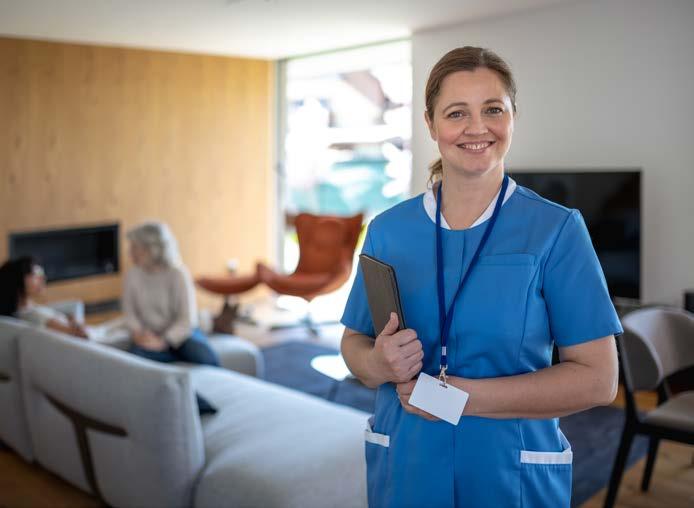
Low employee morale can have a negative impact on a home’s ability to attract and retain the best employees, leading to high staff turnover and ultimately affecting the standard of care. However, there are steps that can be taken to improve morale and keep motivation high, even in the wake of a poor CQC report.
One important step is identifying the problems and addressing them in an efficient and effective manner so that progression and improvements can be seen. A CQC report highlights the areas in which a care home is struggling, and also provides insight into the home’s strengths. It’s important to remember that the CQC are there to work with you, not against you. Hiring an advisor or consultant can also help to identify and resolve these issues before the next CQC visit, although this comes at an extra cost. In some cases, the biggest problem may be problematic staff or a stagnant manager, and these individuals may need to be removed in order to improve the overall performance of the home. You will see straight away that the morale of the remaining workforce increases – as it just takes one tricky member to bring the whole team down.
Setting small goals can also help to focus staff and create a sense of accomplishment. By breaking down the larger task of improving the home’s performance into manageable chunks, each person is able to see the progress they are making and feel motivated to continue working towards the larger goal. Providing regular feedback and support can also help to keep them
motivated, as they feel valued and appreciated for their efforts.
Another important aspect is ensuring that employees have the necessary resources and training to perform their job to the best of their ability. Workers can become unmotivated if they feel they aren’t given the right tools and knowledge to do so. Providing access to training and development opportunities can help to improve the quality of care and keep staff motivated. Additionally, it’s important to create a positive work environment, with open communication and a supportive management team. This can help to build trust and encourage collaboration among staff, leading to a more cohesive and motivated team.
Investing in the workforce is also key to maintaining high morale. This could be providing access to mental health support, while offering regular breaks and time off can also help to prevent burnout and keep staff motivated. It also means investing in the recruitment process, which can be both lengthy and pricey, but could be extremely beneficial to the home, and ultimately lead to lowered costs in the future. Investing in both staff wellbeing and recruitment helps to ensure a happy and healthy workforce, leading to reduced staff turnover and therefore reducing agency and recruitment costs.
Finally, it’s essential to involve staff in the decision-making process moving forward. By opening the doors and actively seeking input and feedback, it can help them to feel valued within the workplace. This leads to further interest and investment in the success of the home and they are more likely to be motivated to work towards meeting the recommendations. It also promotes greater creativity due to the different ideas and insight, which can help gain a
fresh perspective on the task or problem at hand, allowing it to be tackled head on with a united front.
Although the process of rebuilding a reputable rating may be intimidating, especially for smaller care providers who feel they lack support and direction, just remember by addressing the problems, setting small goals, providing regular feedback, and investing in the workforce, you have every chance of success. Ensuring that your employees are at the forefront of your decision making will create a united workforce that will always come out on top and meet the recommendations of the CQC.
Ravi Sodha is the Director of ACI Care, a group of care services that focuses on providing quality, tailored care to older people living in Kent, East Sussex and Northamptonshire. Across their four idyllic homes, their dedicated team of staff provide residential, respite and dementia care, with their core focus being to enable residents to live independent and fulfilling lives.
12 ISSUE 105 | WWW.CAREANDNURSING-MAGAZINE.CO.UK NEWS & VIEWS 07969 110723 Your Commercial Kitchen and Laundry Equipment Experts sales@ckls.co.uk
Photo Credit: iStock Photo Credit: ACI Care
Raising the status of carers
‘Treat carers better and
more
people will want to be one,’ says
The status of care-workers in London deserves a serious upgrade, the head of a new care-in-your-own-home service says.
Juhar Hagos, owner of Blossom Homecare in West London, says it’s hardly surprising there’s a shortage of staff in the profession when being a carer is seen by many as a low-status job in which people are overworked and under-paid.
“We’re determined to change all that,” says Juhar. “Many carers find the job highly frustrating because they only spend 15 minutes with each client, they hardly have time to get to the next appointment, and then they only get the minimum wage.
“How can you care for anyone properly in 15 minutes? How can the client form any kind of relationship with them, or sit and have a chat, or go for a walk?
“If any loved-one of mine needed care in their own home, I know they’d want the care to revolve around them so they can retain their independence and dignity and continue living on their own terms.
“Not everyone wants to be addressed by their first name, infantilised, or forced
industry disruptor

to play bingo in a care home.
“There are so many people who’d rather be dead than live a life like that, so they want a premium care service in their own home and don’t mind paying good money for it.
“They’ve travelled through life First Class and don’t want to downgrade now just because old age is creeping up on them or they’re becoming a little too vulnerable to live without support.

“It takes a special breed of carer to help them with that, which is why we’re paying our carers substantially more, treating them with the respect they deserve, and encouraging them to gain qualifications and turn their vocation into a career.”

Instead of 15-minute whirlwind visits with barely time to say hello and goodbye, Juhar says Blossom’s home visits are always for a minimum of 50 minutes, giving carers time to deliver proper care and get to know the clients and their needs, however exacting those may be.
“Our carers will be able to go home every day feeling immense satisfaction at the difference they’ve made to people’s lives,” says Juhar. “And they won’t be stressed about whether they’ll be able to reach the next client in time
or whether they’ll even get their petrol money back.”
Juhar, who has a first-class degree, is launching the West London franchise of Blossom Homecare from an office in Kensington and will be covering a vast swathe of London stretching from there to Hounslow.
He’s creating 17 jobs initially but intends to increase that to more than 150 as his business expands and opens more local offices.
“I was drawn to Blossom because it believes in doing things properly,” says Juhar. “Its co-founder, John Leggott, insists on the highest standards, and there’s even an app so relatives can check in real time what care their lovedones have received, and when.
“That level of transparency and openness is revolutionary in this profession, and we know it will make life so much better for our clients and their families.”
Juhar, from a long line of entrepreneurs, says he’s on a mission to improve the lot of both carers and those they care for, and hopes the example Blossom’s setting will eventually lead to the rest of the care profession upping its game.
13 ISSUE 105 | WWW.CAREANDNURSING-MAGAZINE.CO.UK Photo Credit: Adobe Stock 07969 110723 Your Commercial Kitchen and Laundry Equipment Experts sales@ckls.co.uk NEWS & VIEWS
As food procurement experts allmanhall are supporting carers, nationwide. 10%+ savings are achieved and price increases mitigated. allmanhall also provide administrative supportfrom managing deliveries to reducing the number of invoices care homes receive.





In 2022 allmanhall won the Care Sector Supplier Award for the value they deliver.
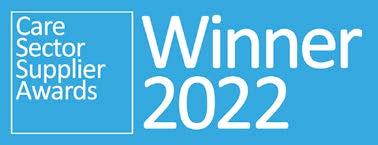
St Martins Care say: “The mobilisation of the new catering suppliers, and the transfer of existing ones to allmanhall was – and continues to be – smoothly managed… reassurance and peace of mind at each stage.”
Notaro, who’ve been
supported by the food procurement specialists for 5years, add: “Through the financial and administrative savings made with allmanhall, we have been able to re-invest in our catering service… I would certainly recommend allmanhall as a great support to our ultimate goal of quality residential care.” Find out how your care catering could benefit from allmanhall’s support:
14 ISSUE 105 | WWW.CAREANDNURSING-MAGAZINE.CO.UK PRODUCT SHOWCASE 07969 110723 Your Commercial Kitchen and Laundry Equipment Experts sales@ckls.co.uk Specialist
insurance 01480 272727 We arrange tailored insurance programmes for care and nursing homes, hospices and domiciliary care providers, for both staff and business owners. Our extensive knowledge of the care market will help to ensure you have the right protection in place for now and, for the future. Secure robust cover that’s right for your business. Impartial advice from experienced advisers Exceptional service from a dedicated account executive Market-leading products from A rated insurers Support with claims Guidance on risk management solutions inc. H&S and HR Let us help you to protect your business with a no obligation risk review today! E. enquiries@barnesinsurancebroker.co.uk W. barnesinsurancebroker.co.uk /barnes-commercial Barnes Commercial Limited trading as Barnes Commercial Insurance Broker is a Company registered in England and Wales, registration number 11909011. Our registered office is 3 Fenice Court, Phoenix Park, Eaton Socon, St Neots, Cambs, PE19 8EW. Barnes Commercial Insurance Broker is authorised and regulated by the Financial Conduct Authority under register number 844370 for Insurance Distribution activities and as a Credit Broker and does not charge any fees to customers in relation to Credit Broking activities. With uncertain times ahead and high food inflation, now is the perfect time to work with us and benefit from our award-winning food procurement expertise, admin efficiencies and support for your catering team. What would 10% food cost savings, mean for your care homes? allmanhall.co.uk allmanhall care… about Care!
care home
allmanhall.co.uk
hello@allmanhall.co.uk
Free up time by trusting the experts at Well Pharmacy with your medicines management
Luckily, the experts at Well Pharmacy are here to offer their support through the chain’s dedicated Care Home Service.

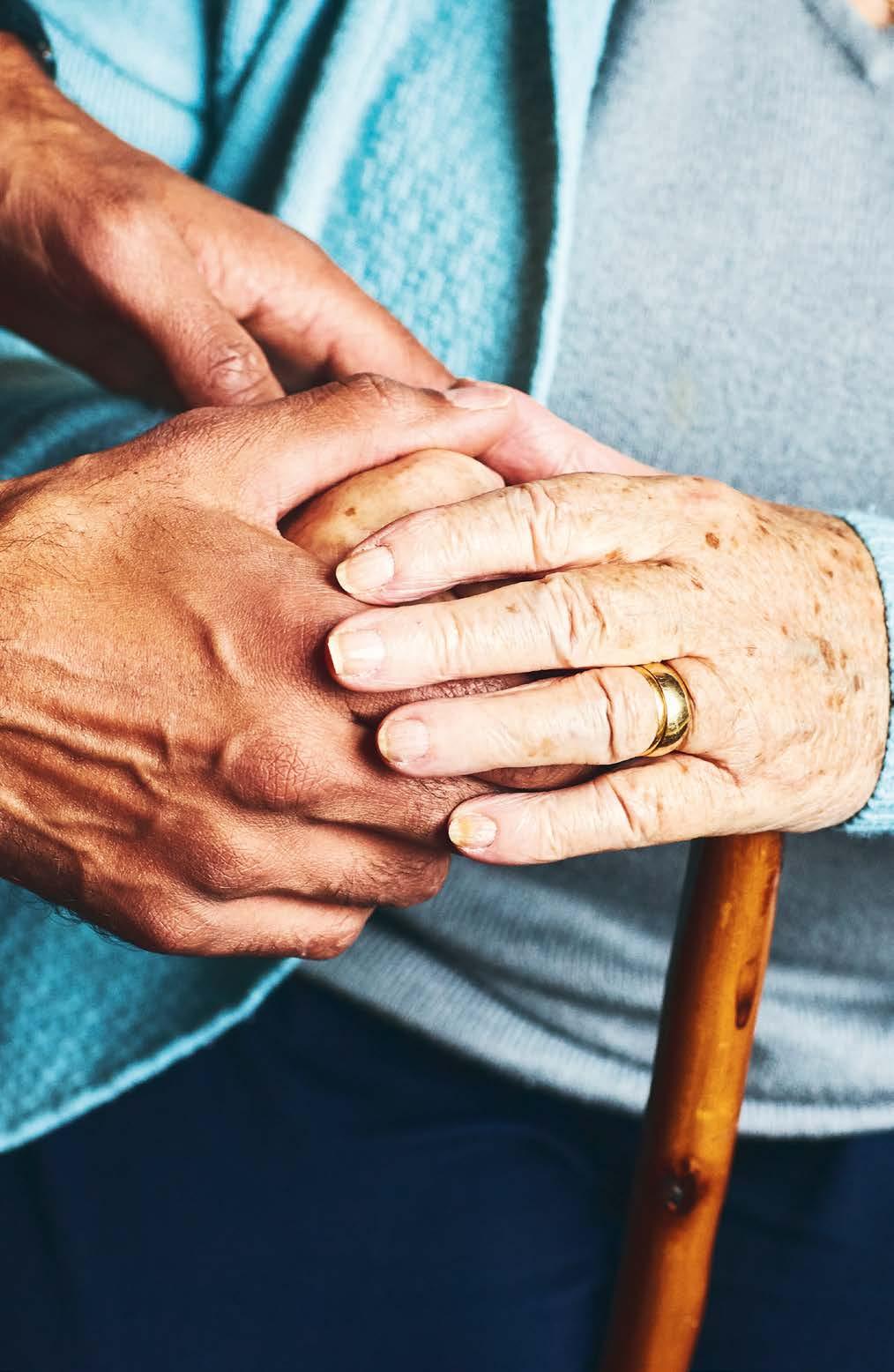
Backed by and run from more than 750 local Well Pharmacy stores across the UK, the service run by

local teams takes care of delivering safe and effective personalised medicines management for residents – giving staff more time to focus on their other needs.

Local Well Pharmacy teams work with care and nursing homes to develop a package that works for that individual
home, and all of these include a local dispensing service, local delivery drivers and a dedicated customer account manager to make sure everything runs smoothly.

Teams handle everything prescription-related, including chasing any missing prescriptions from prescribers and organising recommended alternatives for any items that are out of stock – although with access to a large and well-stocked
central hub, this is likely to be a rarer occurrence.

The service offers original pack dispensing and racked medication dispensing, alongside delivery of monthly medication and interim medication, all designed to give care home staff one less thing to worry about.
To find out more about the Care Home Service offered by Well Pharmacy, visit Care Homes – Well Pharmacy or email carehomes@well.co.uk.
15 ISSUE 105 | WWW.CAREANDNURSING-MAGAZINE.CO.UK PRODUCT SHOWCASE 07969 110723 Your Commercial Kitchen and Laundry Equipment Experts sales@ckls.co.uk FREE interim deliveries* Contact us today: Call: 0333 866 6980 Email: carehomes@well.co.uk Visit: well.co.uk/carehomes
Services Providing person-centred care *Dependent on size of care home and location We provide a local service, with a national structure of over 750 pharmacies across the UK Choice of paper MARs or one of our multiple eMAR partners We o er Original Pack, Dosette Boxes and Racking medication to suit your individual needs We follow up on your prescriptions with the GP so you don’t have to,
you more time to
residents Delivery of monthly and free
interims*,
a bespoke package 743495 Well Care Home Services Half Page Advert.indd 1 07/02/2023 11:09
Well Care Home
giving
take care of your
same-day
providing
Managing medication could almost be a full-time admin job for many care and nursing home staff, with many residents having complex medical needs – and those needs often changing over time (or overnight, in some cases).
Exclusive healthcare collections with innovative fabrics at their heart.
In a recent exclusive healthcare partnership with Micro-Fresh®, Grahame Gardner introduced a new scrub range which uses leading antimicrobial technology to stay fresher longer and help reduce cross-infection.
The range, exclusive to Grahame Gardner, incorporates cuttingedge technology - Micro-Fresh®- to help keep healthcare workers safe by ensuring wearer sterility, reducing cross infection and at the same time, maintaining all day comfort and form.
The garment fabric is incorporated with innovative Micro-fresh® technology at point of manufacture. The antimicrobial technology not only continues to kill 99.9% of bacteria beyond 50 washes but is also proven to reduce the spread of human coronavirus by 99.2%.
With wash resistant antibacterial protection, Micro-Fresh® garments remain effective even when washing at 40C and also boast odour prevention, are hypoallergenic, gentle on skin and vegan friendly.
The scrub top design features multiple pockets, with two waterproof chest pockets and a wearers right hand hip pocket with useful pen divide and an elastic loop for a clip-on hand sanitiser The trousers also have a drawstring waist, side and back pockets.
Available in two fits – unisex and female – and the scrub top is available in six colourways: each with a classic contrasting white trim. The trousers are available in 3 complimentary colours.
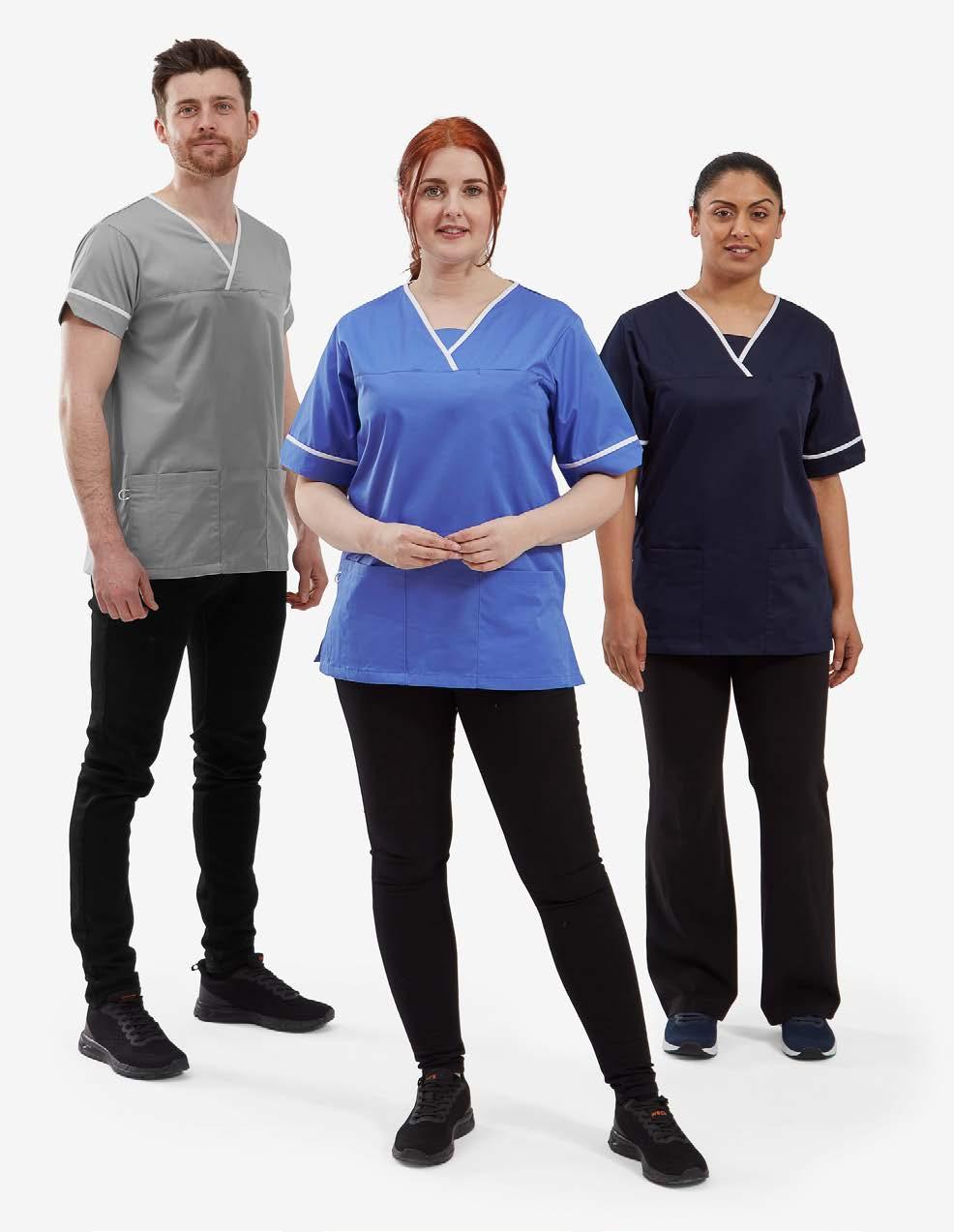
CiCLO® - an innovative way to combat plastic waste
Did you know that over 60% of today’s textiles are made from synthetic fibres which are not biodegradable. Almost all fabrics shed tiny microfibres during manufacture, use and care. When we wash these materials they shed millions of these plastic microfibres that pass through wastewater treatment and into the sea… unless they are made with CiCLO® technology.
CiCLO® is an invisible, sustainable additive blended into the garment fabric at the manufacturing stage. The non-toxic technology is permanently embedded, so will never wash out.
It enables the synthetic plastic-based fibres to behave more like natural fibres, such as wool, but improves on natural fibres by biodegrading faster and helping to reduce the accumulation of plastic waster in landfill and plastic in our oceans.
The new Forward range is an exciting addition to the healthcare scrubs portfolio, not only are these textiles eco-friendly and kinder to our planet but are also designed for style, comfort and adaptability.
The premium scrub collection offers six activewear-inspired styles that include scrub tops and bottoms, zip jacket and a modern crewneck base layer. The Forward collection boasts 4-way stretch fabric, flexible side panels for added movement and modern ribbed trims on necklines, waistbands and cuffs for enhanced optimum comfort. For practicality, there’s also plenty of pockets and the garments are moisture-wicking and both fade and wrinkle resistant.

www.grahamegardner.co.uk
Info@grahamegardner.co.uk
0116 255 6326
16 ISSUE 105 | WWW.CAREANDNURSING-MAGAZINE.CO.UK PRODUCT SHOWCASE
With over 116 years of supplying quality uniforms, Grahame Gardner are firmly planted as experts within the healthcare sector. Their latest exciting collections feature innovative fabric technology that take workwear to the next level.
Photo Credit: Grahame Gardner
Photo Credit: Kindthread
Say bye to lost property!
Trusted by generations of families since 1846, Cash’s is the best place for you when it comes to finding clothing name labels, other woven and printed


Cash’s offer an affordable choice of products including styles, colours and sizes. You will never have to fear losing your belongings again, thanks to the diverse range on offer at Cash’s. From schoolwear/workwear to even care homes, the range we offer is sure to meet your requirements.
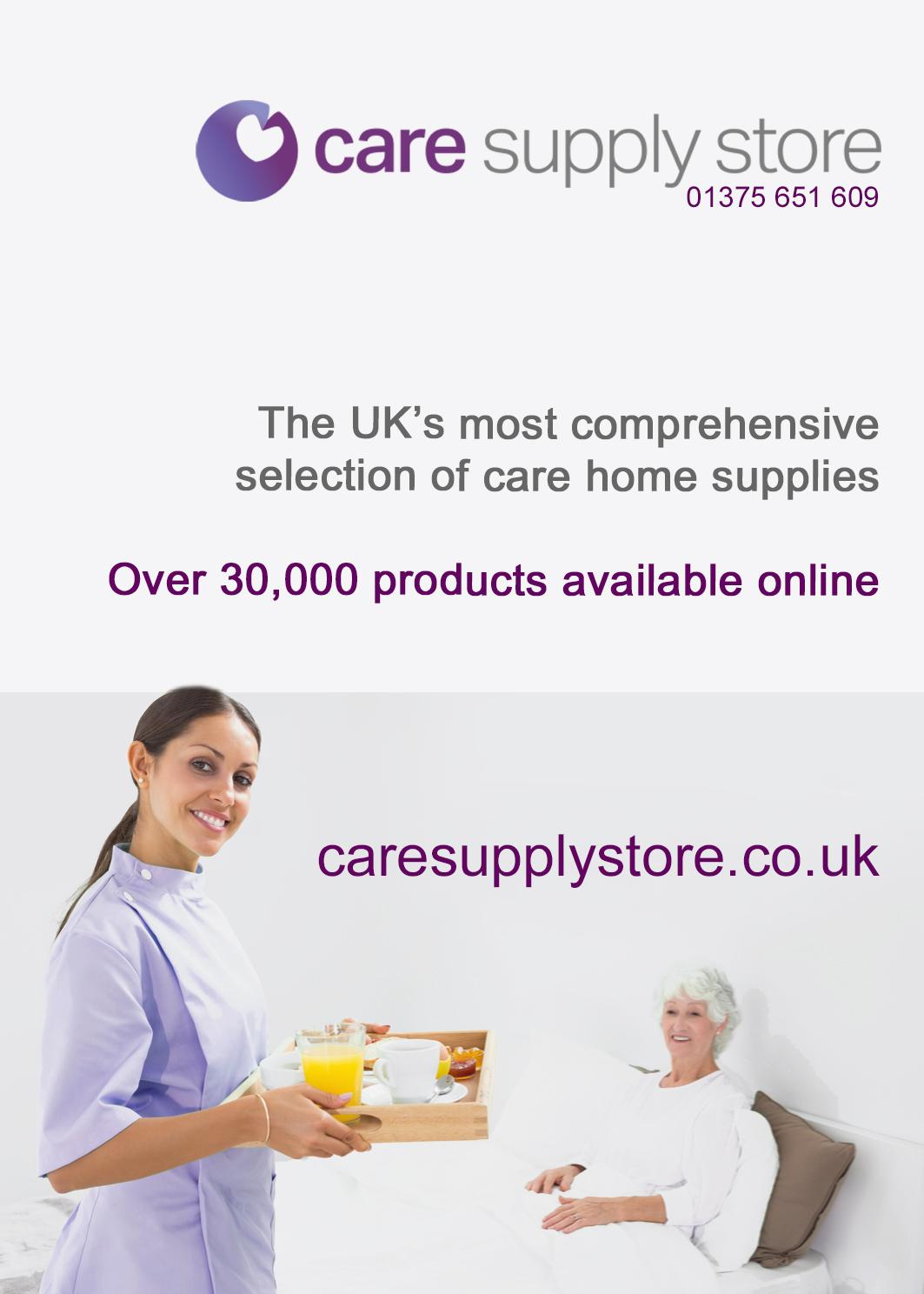
For more information and quotes please contact us: www.cashsnametapes.co.uk


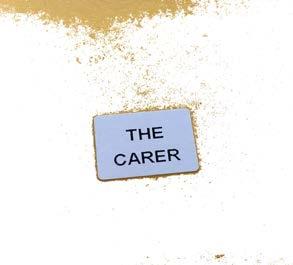
+44 (0) 24 7646 6466


nametapes@cashslabels.co.uk
For 10% discount o all woven and iron-on name labels, add NURSING2022 at the checkout! Valid until 1st June 2023











Our stick on name labels!

17 ISSUE 105 | WWW.CAREANDNURSING-MAGAZINE.CO.UK PRODUCT SHOWCASE
Care & Nursing workwear collections like no other.
SEBO BP60 Cordless Vacuum Cleaner –Power unleashed
The new BP60 cordless upright from SEBO has been thoroughly designed for commercial use and is built for durability and performance.
Many cordless machines suffer from a very small battery capacity inhibiting their suitability for commercial use. The BP60 can run at full power for 60 minutes and to charge the 308Wh battery to 100% takes only 250 minutes.
Cordless vacuum cleaners can also lack dust capacity. The BP60 features a large 5.5l bag which is made from a technologically advanced 4-layer electrostatic fleece
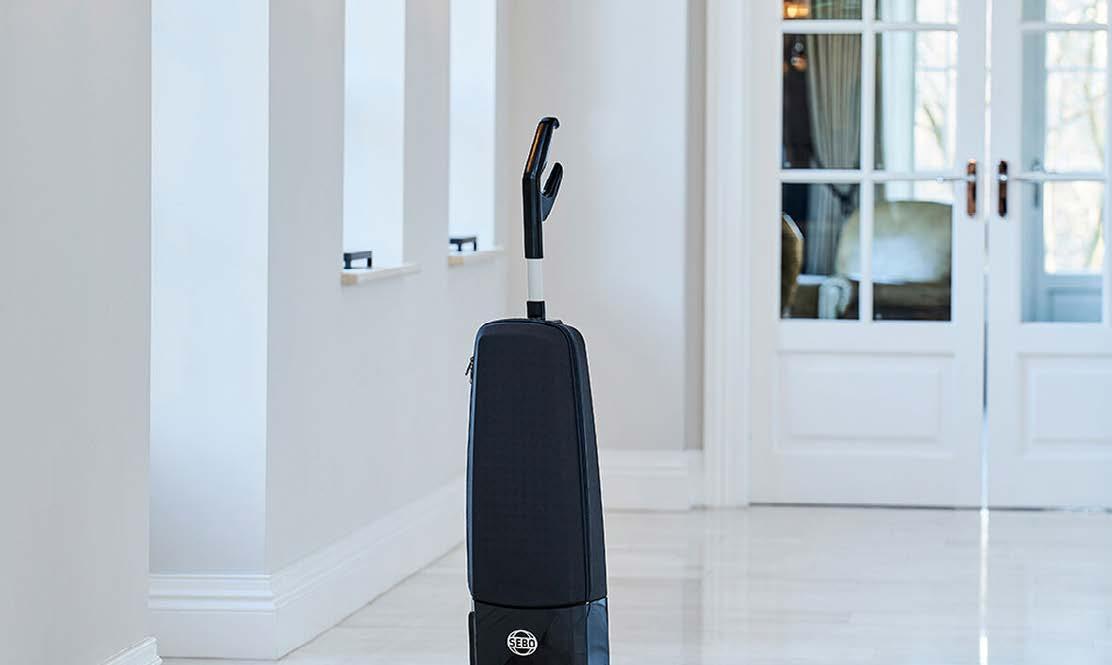
material. The electrostatic fleece has a number of benefits. It is immensely strong and has a very high level of filtration making handling it safe and hygienic. Its filtration level is so good, that it is the only filter required in the BP60, reducing cost of ownership and maintenance required.
As you would expect from SEBO, there is a host of hidden innovations inside the machine which takes impeller technology to a new level of
performance and reliability. Both the brush roller and the turbine are driven by timing belts which together enable the 300W motor to give cleaning performance equal to a plug-in vacuum cleaner which uses far more power. To protect the belts and motor the BP60 has an ingenious, simple and reliable magnetic system which will automatically release the on/ off button to turn the machine off if the brush becomes
jammed. Blockage clearing is made easy as there is a spring-loaded access door on the base of the vacuum. The brush roller, which is common to other SEBO models, is simple to remove by hand without the need for tools. The vacuum cleaner also works when flat to reach under furniture.
Powerful performance, long run time, reliability and ease of use – The SEBO BP60.
Sleep – Sorted?
What does poor sleep cost you? Your family?
sleep of its poorest sleeper transform from “very bad” to “very good” in three weeks –from 2-5 to 6-9 hours/night. We are now looking for care home partners to trial the Zeez and expect to deliver more night-time sleep and better daytime energy for
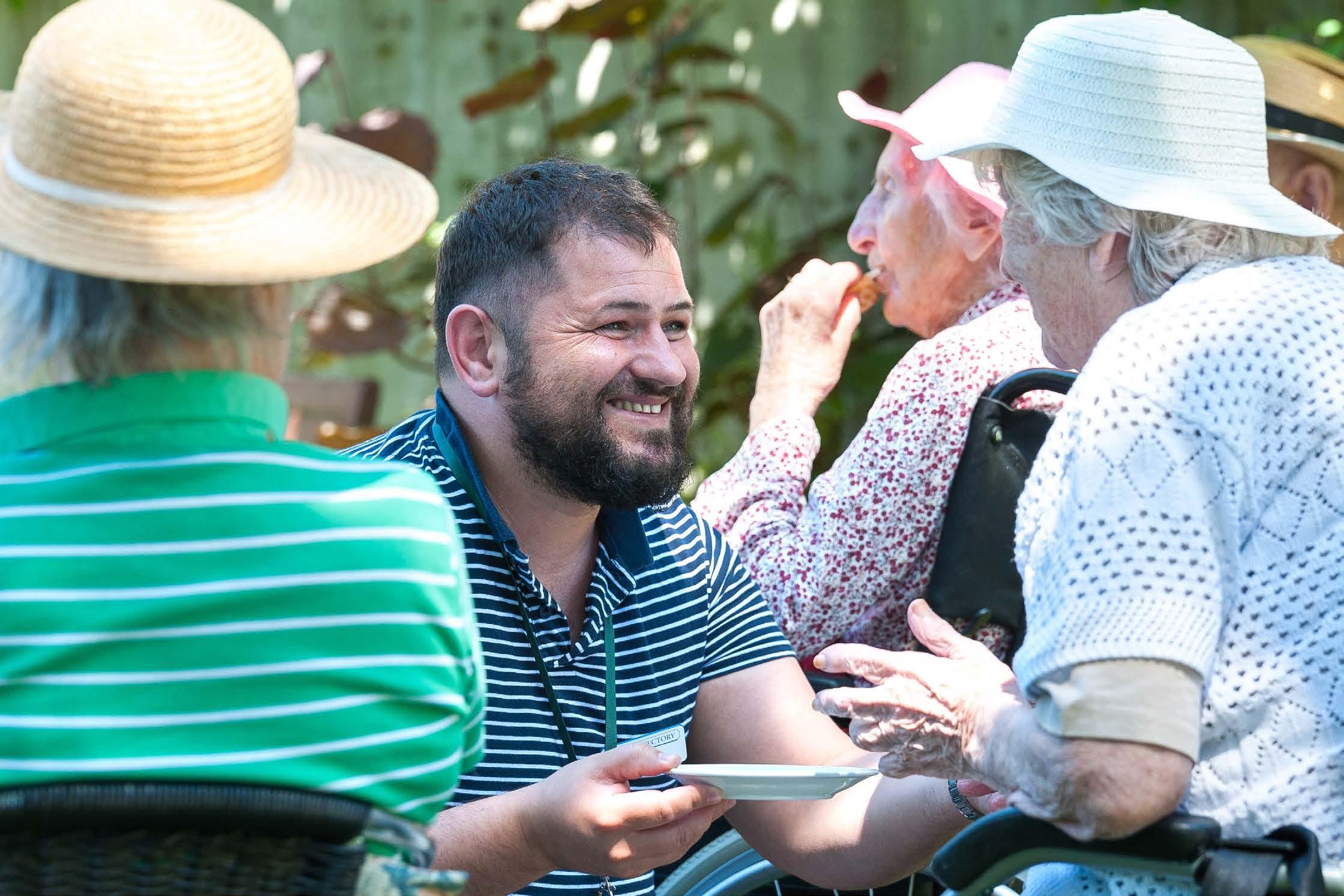

reduction on purchases of the Zeez Sleep Pebble until April 30th 2023 (code “care” via
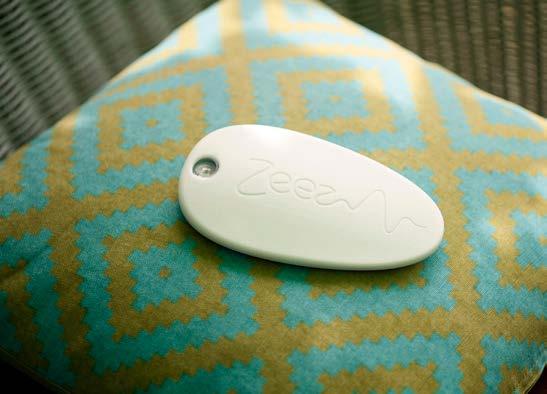
18 PRODUCT SHOWCASE
SEBO BP60
Photo Credit: Zeez Sleep As experienced practitioners we equip care home teams with the skills they need to provide a sustainable, vibrant leadership approach centred around partnership working and an enriched quality of life for residents, staff and families alike. The care industry needs a shake-up –and the Eden Alternative is here to help deliver that change. Develop a culture of care with wellbeing and positive relationships at its heart, with our six-week online programme. In just one hour a week, you can become an accredited Eden Alternative associate and replace loneliness, helplessness and boredom with comfort, companionship, and meaningful activities – all with ongoing support from our expert team. Sign up today to discover a visionary approach to care.

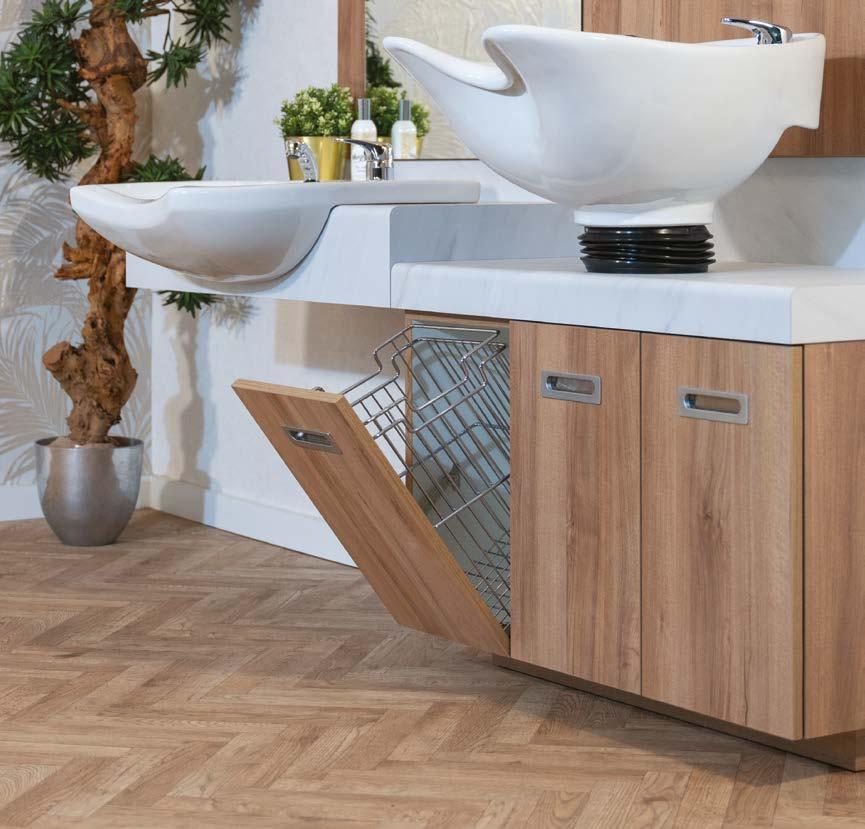
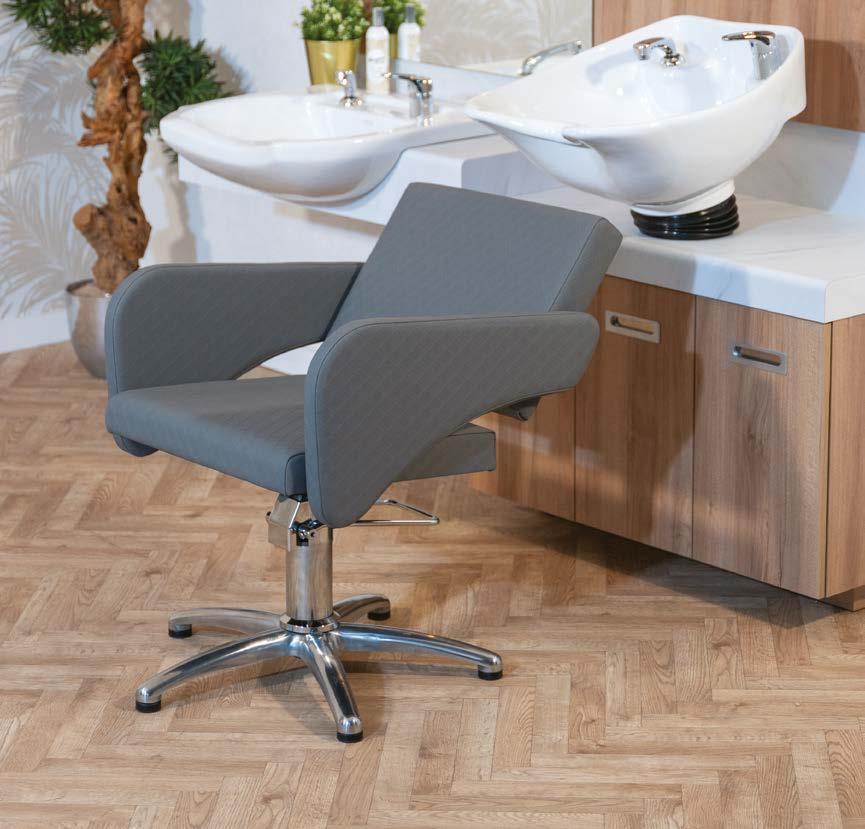
19 ISSUE 105 | WWW.CAREANDNURSING-MAGAZINE.CO.UK CONTACT US ON 01282 619977 OR EMAIL SALES@REM.CO.UK W: WWW.REM.CO.UK E: SALES@REM.CO.UK REM have been manufacturing furniture for the Hair & Beauty Sector for over 100 years and are now considered to be one of the largest manufacturers in both the UK & Europe. For 2023, and understanding the growing requirement for Care & Residential Home Salons, REM’s Design Team have produced the Pendle Care Range for the Small, Compact Care Home Salon. For More Information on our Product Range, Contact Us Now. 2023 Care Range
NORTH SHORE WASHROOM SOLUTION SHOWCASED AT THE CLEANING SHOW
The North Shore premium proprietary system of washroom dispensers and consumables from Northwood Hygiene Products Ltd is a leading manufacturer and supplier of away-from-home (AfH) professional paper hygiene and wiping products.
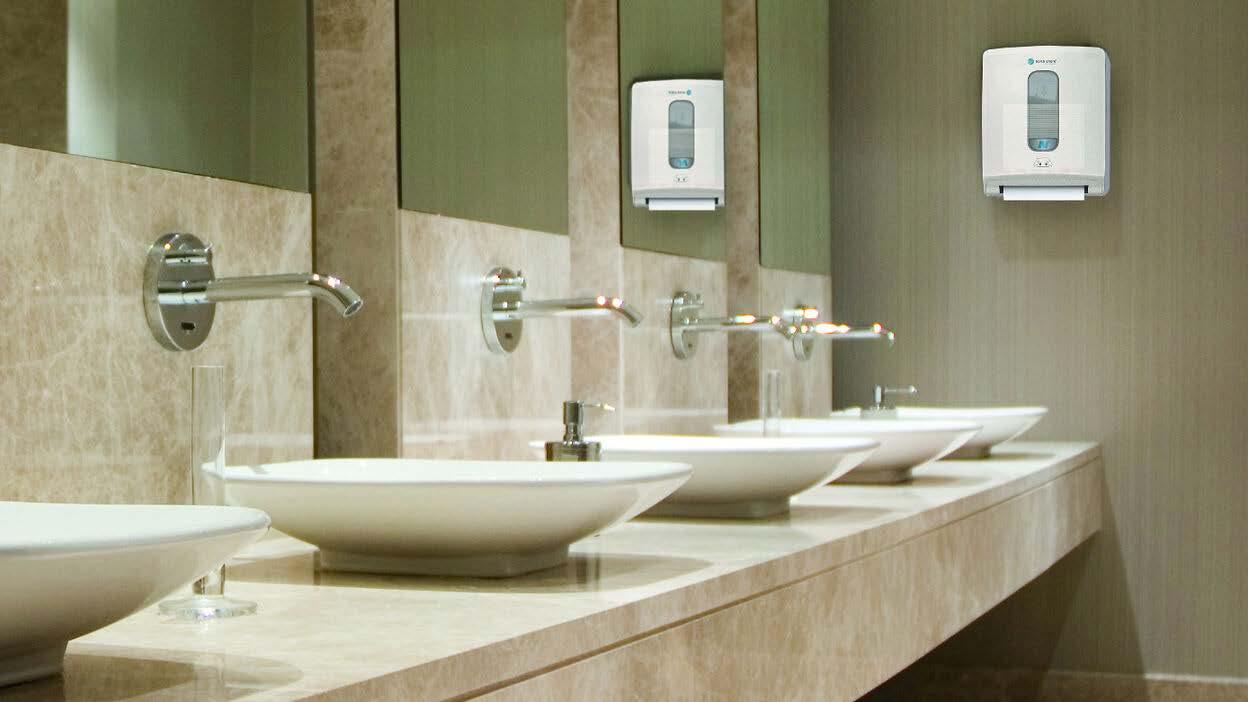
Designed to deliver zero waste and volume in use, North Shore offers industry-leading capacity and supreme cost-in-use benefits. it is easy to install and maintain, as well as being durable, hygienic and environmentally sustainable.
There are three wipe-clean hand towel dispensers and a choice of hand towels, plus a selection of toilet tissue and soap dispensers and consumables in the range – all of which have been designed to curtail waste and over-use, therefore reducing
costs.
Ensuring 100% of the paper is used, both the 5,000-sheet capacity Orbit and the 2,500-sheet capacity Sideby-Side toilet roll dispensers prevent ‘free rolling’ and only allow access to the next roll once the current one has been used.
The hand towel dispensers include a high-capacity mechanical hands-free roll towel dispenser, a sensoroperated, premium towel on demand hybrid roll towel dispenser and a folded towel dispenser, which dispenses sheets one at a time to
prevent over-use.
There is a choice of soap dispensers and consumables for the washroom too. The easy to load manual soap dispenser is simple to wipe clean, with each cartridge including a new nozzle for added hygiene. It is compatible with Northwood’s range of alcohol and alcoholfree sanitisers and soaps. North Shore also offers washboards free of charge to help promote good hand hygiene.
North Shore delivers strong green credentials as well. All North Shore packaging
(including cardboard cores, cardboard cartons and paper and plastic wraps) is fully recyclable. Furthermore, more than 90% of North Shore products sold are made from 100% recycled material with Forest Stewardship Council® (FSC®) certification.
All North Shore dispensers are lockable to prevent theft and vandalism and are provided free-on-loan to end users.
For further information on the North Shore range, please visit www.northwood. co.uk, or call 01952 236 930.
20 ISSUE 105 | WWW.CAREANDNURSING-MAGAZINE.CO.UK PRODUCT SHOWCASE
Photo Credit: Northwood Hygiene Products Ltd
Introducing Aquarate
Aquarate

have developed Hydracare Technology - a smart way to track how much an individual drinks using the Hydracup.
Hydracup is the only smart cup on the market which can produce accurate data that integrates into care systems, saving staff time, and delivering quality care. The Hydracup discreetly tracks an individual’s fluid intake by measuring liquid volume automatically, allowing caregivers to proactively support further fluids to those who need it the most.
Hydracare technology ensures accurate, automated fluid monitoring to reduce incidences of dehydration and patient safety issues, increasing quality of care.
Hydracare Benefits
• 24/7 accurate real-time fluid intake data for carers
• Intelligent remote monitoring, reducing time for staff to record
• Reduced patient safety issues
• Supports independent living for longer
• Fluid intake history to help keep track of the past
• Restricted fluid management to help limit consumption
• Works with hot and cold drinks
• Commercial dishwasher safe for quick and easy cleaning
• Up to 5 day battery life with low battery indicator
• Spill detection with
immediate alerts so you can react fast Get in contact to book a free demo. Hydracare Technology starts at as little
HYDRACARE TECHNOLOGY THE SMART WAY TO MONITOR FLUIDS

as 40p per resident per day. Let’s look after our loved ones!
(link to Aquarate website) www.aquarate.com
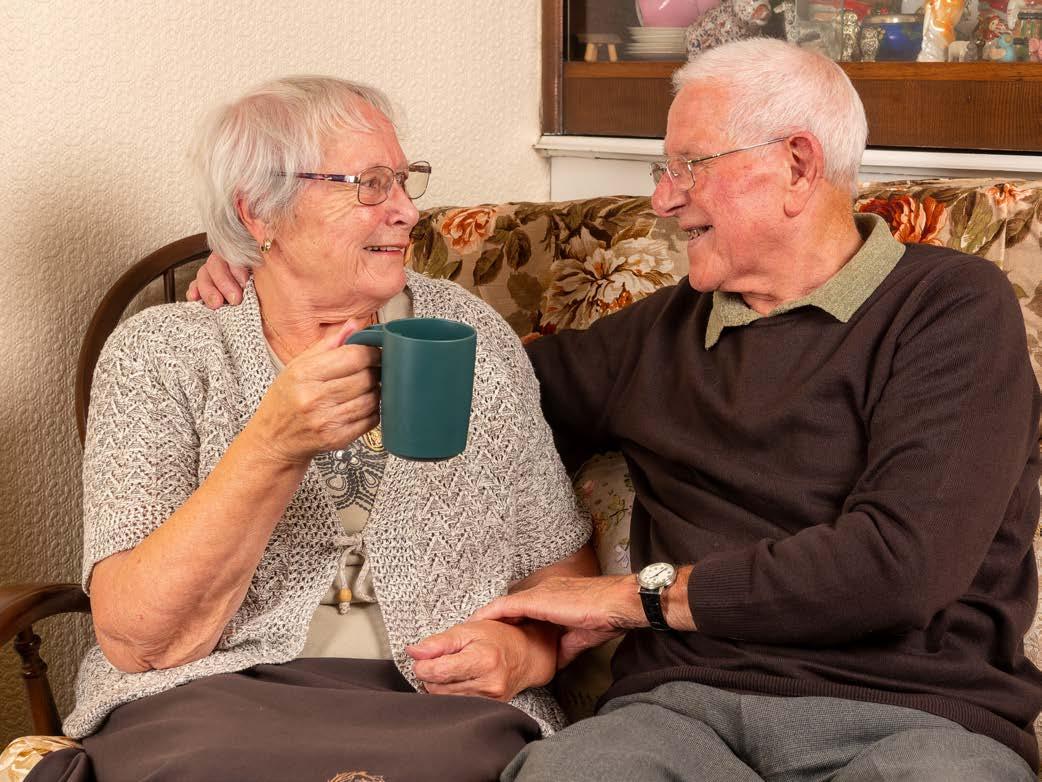
21 ISSUE 105 | WWW.CAREANDNURSING-MAGAZINE.CO.UK HYDRATION TECHNOLOGY AQUARATE.COM HELLO@AQUARATE.COM 0151 673 1974 MONITOR FLUID INTAKE, ANYTIME. Accurate, real-time fluid intake data Tracks sip by sip Proactively care for residents Eliminate guesswork and inaccuracies Sending the data straight to you CONTACT US TO BOOK A FREE DEMO
Photo Credit: Aquarate
Are ‘At Home Sensors’ the Answer to Britain’s Social Care Crisis?
Re-imagining healthcare with cutting-edge connectivity
Britain is in the midst of a social care crisis with soaring demand, significant funding gaps, staff shortages and fewer care beds leading to increased pressure on the NHS.
However, innovators in the healthcare technology industry are developing tools and devices that harness connectivity to revolutionise the care sector by enabling safe, patient monitoring remotely, promoting at-home patient support and supplementing ‘virtual wards’.
To improve healthcare provision for a growing elderly population, ‘virtual wards’ have been introduced by NHS England to provide treatment and rehabilitation in the patient’s own home using a combination of remote monitoring and face-to-face care. Virtual wards not only prevent unnecessary hospital admissions among vulnerable patients who are most susceptible to infections, but allow quicker discharge, increase productivity, improve patient experience, and reduce costs.
Some providers are choosing a combination of technological solutions and adopting a flexible step-up, stepdown approach that adapts to support the patient’s needs. A virtual ward is provided to those who are medically stable to go home but require wrap around care until they are well enough to progress to a self-monitoring/IoT solution and, in the same way, for those who are self-monitoring but show signs of deteriorating or further illness, progress from self-monitoring to the

more intensive virtual ward support to prevent them from going into hospital. However, relying on self-reporting can lead to problems if there is a lack of patient engagement and it doesn’t provide a real-time assessment of the patient’s health, with physical visits from healthcare providers still required to ensure the safety of patients.
As specialists in connectivity and digital innovation, WM5G has partnered with IoT Solutions Group to develop ‘At home’ or ‘care’ sensors that can assist the virtual ward model by monitoring patients within their home 24/7, alerting care providers of any change in patient behaviour.
Placed in the kitchen of vulnerable or elderly person’s homes, at home sensors use humidity in the room - such as that generated from boiling a kettle, using a toaster or oven - to build an accurate picture of the resident’s daily life, creating a behaviour template or ‘digital twin’. That data is then used to notify healthcare providers in real time if there are changes in behaviour, lack of activity or unusual readings within the home. These ‘at home’ sensors have been trialled across several council assisted living residencies in the UK including Sutton and Wolverhampton with extremely encouraging results. In fact, Sutton Council believes lives have already been saved by the sensors when three people were found unable to move following a fall or illness by carers who had been alerted, by the sensors, of reduced activity around the home. This included residents using

‘wearable alarms’ who were unable to activate them and meant that help could be provided immediately, rather than the resident waiting for the next time a carer or family member visited.
Whilst at home sensors are predicted to play a pivotal role in supporting virtual wards, the progression of this technology relies on care home providers and hospitals engaging with innovation and remaining open to the ways technological developments can help.
As well as monitoring the health of a patient, sensors placed around the home could also provide additional benefits such as monitoring the temperature within homes to ensure that patients aren’t victims of fuel poverty, as well as potentially playing a role in the preventive agenda by managing people’s behaviour and promoting healthier living.
https://www.wm5g.org.uk
22 ISSUE 105 | WWW.CAREANDNURSING-MAGAZINE.CO.UK TECHNOLOGY / SOFTWARE
By Jayne Rooke - Head of Health & Care, Digital Innovation Company, WM5G
Photo Credit: IoT Solutions Group

grace, kindness, and life.
But there’s more to us than a name. We’ve worked on nearly every nurse call brand available on the market, and knew where things were going wrong.
We’ve designed the CHARIS nurse call system to be simple to use, advanced in capability and to assist care staff with monitoring and responding to resident requirements in a more efficient and safer way.
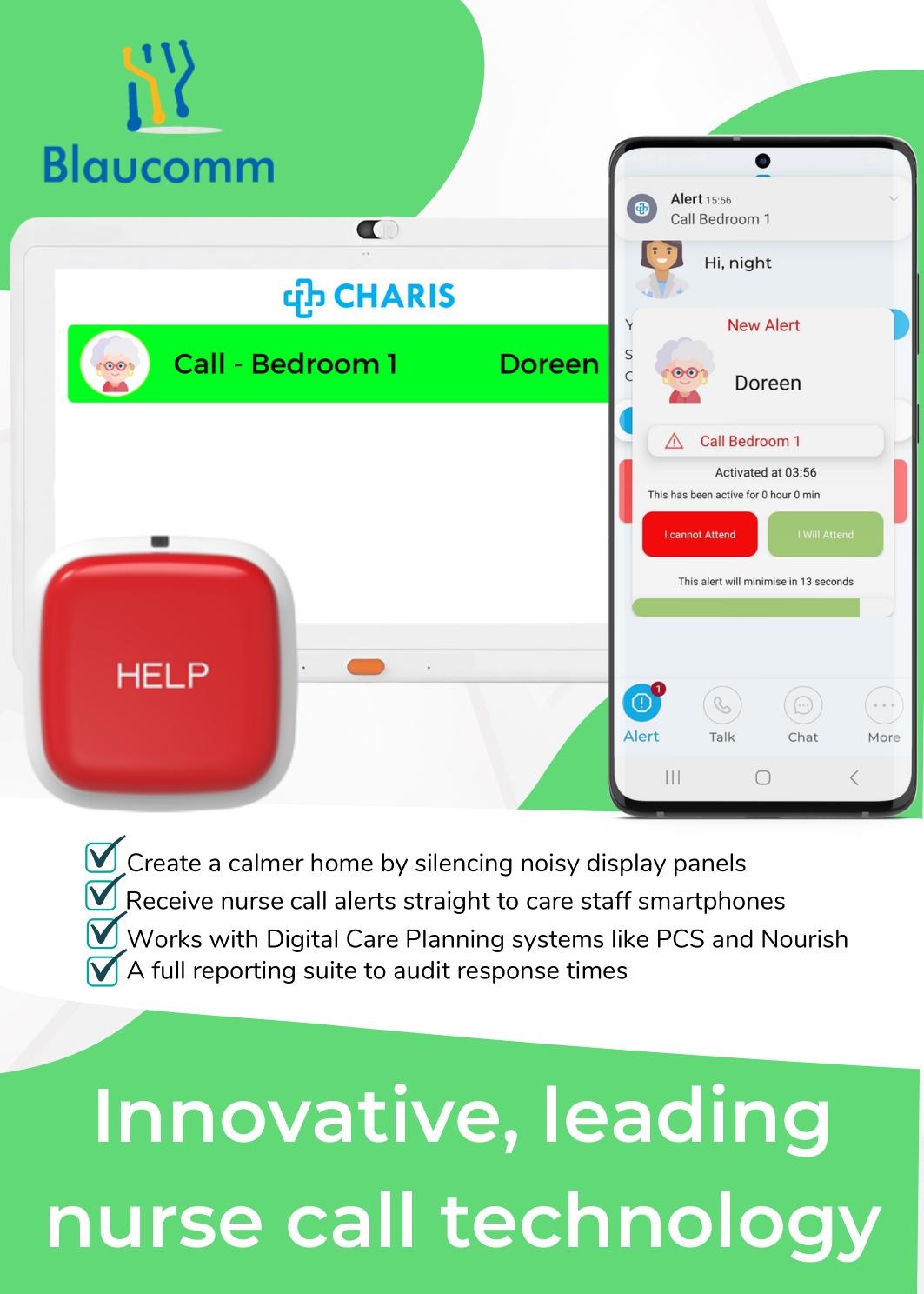
CHARIS allows alerts to be delivered to the android mobile devices that staff are already carrying, and includes
a Walkie Talkie and text messaging feature to enable effective communication between staff in the building.
Furthermore, our links in the digital care planning systems like PCS and Nourish enable a fully-connected solution for full reporting and awareness by management. Finally, a modern nurse call system that makes life easier, not more stressful!
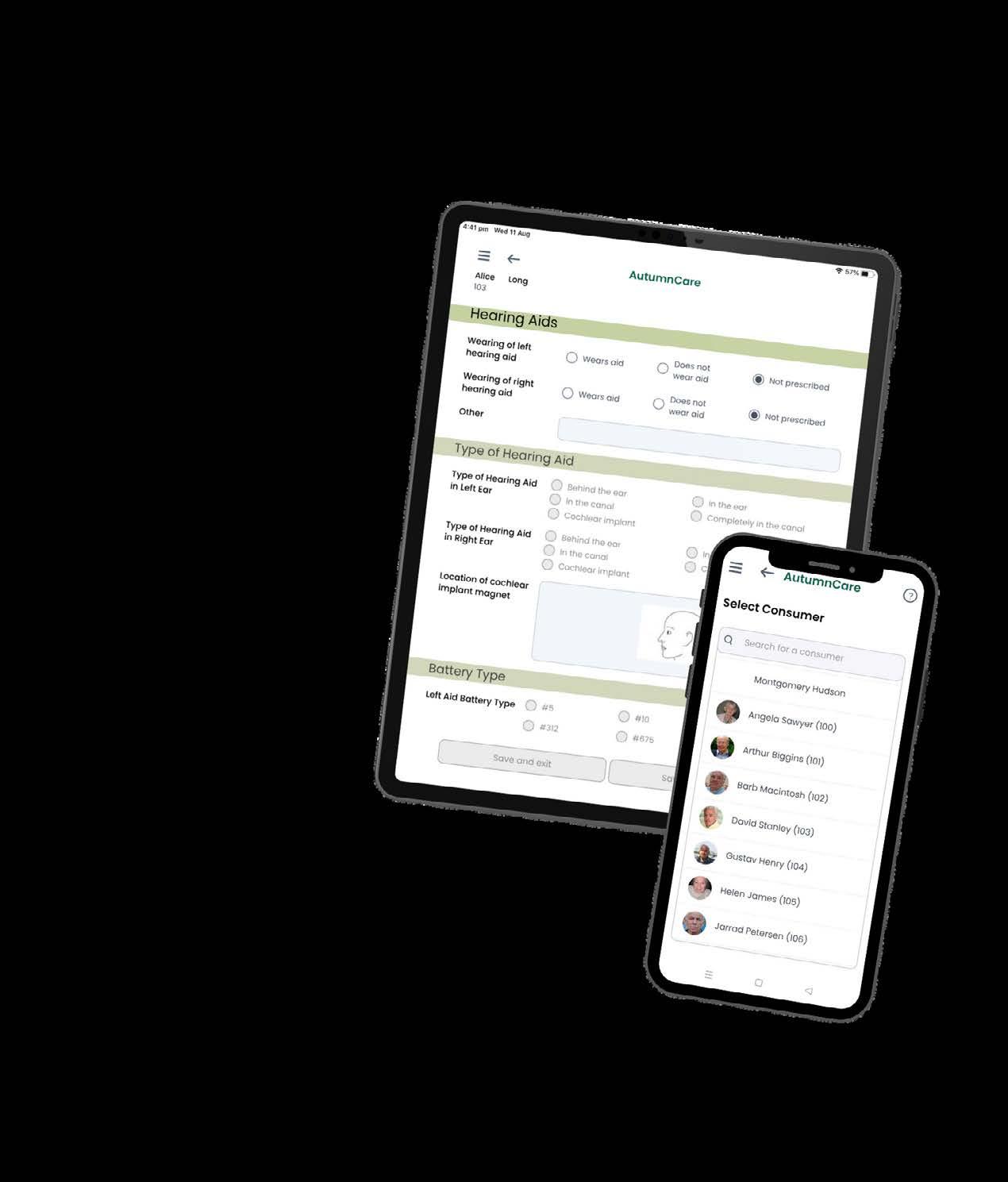
Contact one of our CHARIS experts at Blaucomm for more information:
03333 601 006 or hello@ charisnusecall.co.uk

24 ISSUE 105 | WWW.CAREANDNURSING-MAGAZINE.CO.UK TECHNOLOGY / SOFTWARE NOW IS THE TIME TO GO DIGITAL Digitise your care planning and eMAR Contact Chris c sharman@autumn care Hire for less Complete Recruitment Software Built for Care Providers From £79 + VAT per month The recruiting edge you need to succeed Why wait? Book your free demo now T: 01634 202 101 E: enquiries@cvminder.co.uk W: www.cvminder.co.uk/care with CVMinder ATS Terms & conditions apply. CVMinder is a registered trademark of XperiSoft Limited CHARIS
(Greek);
The
The











Better Care | Better Outcomes






Long before the pandemic, in early 2019 PredicAire's experienced founders realised a holistic end to end CMS was necessary and to be made affordable if the social care sector was going to be truly digitised. Rising cost of care, lack of funding, and an ageing population has resulted in a perfect storm for the sector to adopt technology. After spending 2019 planning the technical requirements, development of the CMS began in May 2020 and the full solution was launched in two care homes in the East of England in early 2021.


Our Mission - To develop responsible technology, powered by Ai, delivering better care and better outcomes.



Our Vision - To be recognised as a leader, re-imagining the future of care through responsible technology




ISSUE 105 | WWW.CAREANDNURSING-MAGAZINE.CO.UK
is the first cloud based holistic Care Management Software (CMS) powered by Artificial Intelligence (Ai) housed under a single data eco system. www.predicAire.ai | hello@predicaire.ai | Tel: 01502 507 349
PredicAire
BOOK A DEMO PREDICT PREVENT CARE INTELLIGENCE PredicAire is the first cloud based holistic Care Management Software (CMS) powered by Artificial Intelligence (Ai) housed under a single data eco system.
Journey
Future
FLO QUALITY ASSURANCE NUTRITION FINANCE FAMILY GATEWAY NHS CONNECT ACTIVITIES CARE PLANNING STAFF & ROTA eMAR MAINTENANCE Maintenance App Carer App Family App Nutrition App
is the first cloud based
Care Management
Intelligence,
under a
data eco system and
for the sector.
PredicAire
holistic
Software powered by Artificial
housed
single
affordable
203 Heights Drive, Leeds, LS12 3TG
About MedCare HQ

We are an award-winning Healthcare agency based in Leeds, West Yorkshire. We specialize in providing highly qualified, experienced staff to our clients across the UK. We pride ourselves on offering an outstanding service with an excellent managerial structure spanning 14 years’ experience. As the core and rapidly growing active service provider, we are a temporary bookings agency services spanning multinational clients,
regional organisations and smaller independent private care homes.
Every week we supply thousands of hours of short notice bookings by adopting three simple principles:Provide the best competitive wages, training and resources so staff can confidently do their jobs.
Develop relationships with staff and customers to deliver a shared standard.

Continuously review and improve procedures to ensure we are operating efficiently.
At
Though currently our agency is specialised in healthcare, we will be venturing into hospitality and logistics in the near future!


26 ISSUE 105 | WWW.CAREANDNURSING-MAGAZINE.CO.UK RECRUITMENT
Photo Credit: MedCare HQ
Seven SIsters Recruitment we
healthcare personnel to Care Homes, Residential Homes and Hospitals.
supply
Welcome to Bluerock, the UK’s leading agency for recruiting and supplying healthcare staff.
Apersonal touch on a national level, Bluerock have being supporting the healthcare sector sourcing staff for the last 12 years. During that time we’ve built a reputation for delivering a gold standard of service for our job seekers and clients.
Through our trusted network, we offer a wealth of different healthcare jobs all across the country and class ourselves as one of the top agencies for providing continued and consistent support to the Healthcare sector. Roles we recruit for include - Registered Home Managers, RGNs, RMNs, Senior Carers and Healthcare Assistants

What makes us so different
is that our dedicated office team is with you every step of the way and will respond to all applications within 24 hours. Bluerock are here whether you are looking for an immediate solution filling your home’s staffing shortages, or perhaps you are in the process of reviewing your preferred suppliers list. Here at Bluerock, we have you covered.
With offices in Leeds & Exeter our reach spans the UK and throughout the EU. Please get in touch as we will not be beaten on price; Leeds Office: 0330 088 1066
Exeter Office: 01392 325 980 rebecca@bluerockgroup. co.uk
STAFF THINK FLEXI
27 ISSUE 105 | WWW.CAREANDNURSING-MAGAZINE.CO.UK RECRUITMENT
Stabilise the workforce infrastructure with temporary, permanent and international recruitment . Highly competitive temp and permanent recruitment rates Real-time analysis and reduction of staffing cost using our consultancy Targeted recruitment solutions through digital marketing Support with UKVI Compliance and HR file management FlexiRecs Complete healthcare staffing solutions... at your fingertips Book Meeting Contact/ Whatsapp 07587 484 919 | 07748 186 700 SPECIAL OFFER 5
1
for free Upto 250
for free Free Digital Marketing Audit £1000 worth of mandatory/CPD training for free
THINK
HCAs &
RGN
hours of temp shift covered
How to fix Care’s skills shortage problem
By Daliah Sklar - CEO & UK Immigration Solicitor, DRSI Global
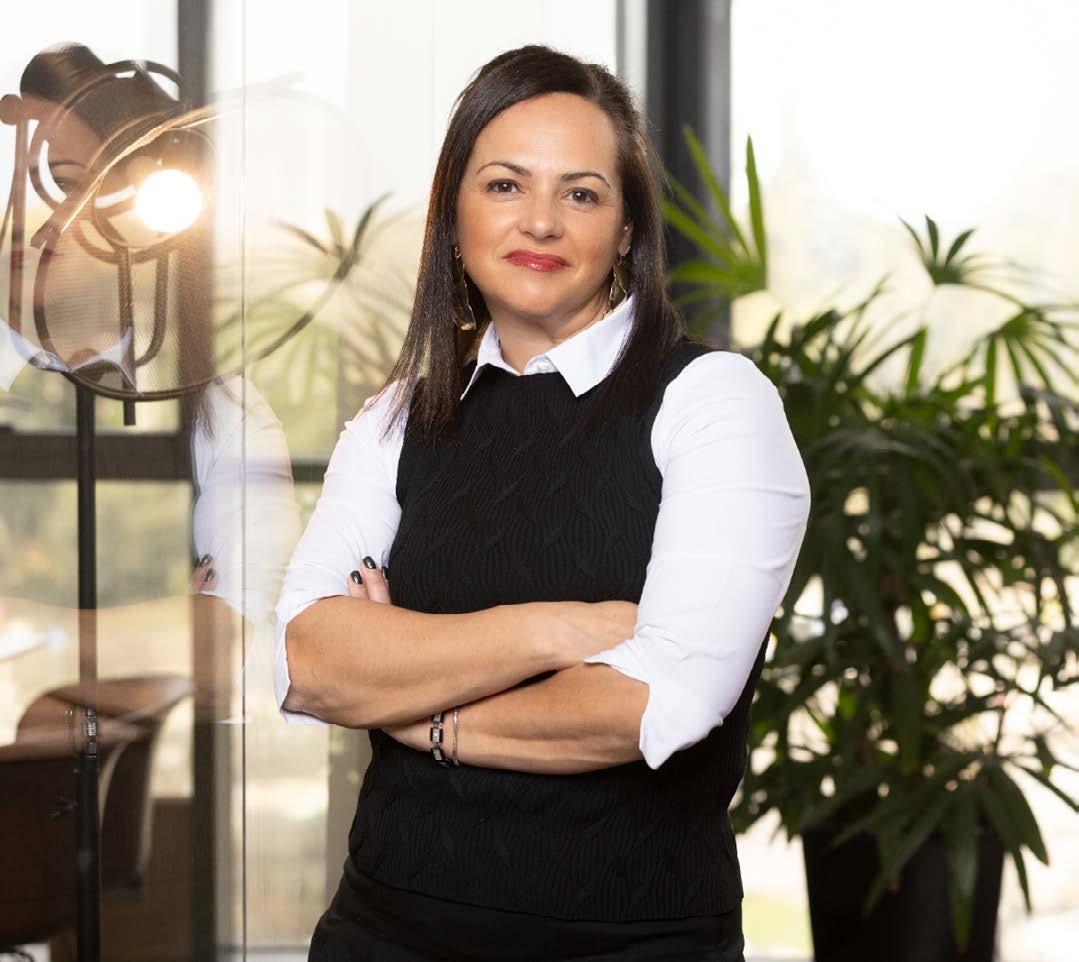
There is a skills shortage currently sweeping the UK economy, and the care sector is no exception.
In fact, it was one of the worst affected sectors by the current lack of talent, with vacancies currently at their highest level in 10 years. There are multiple reasons for the decline in care workers, such as the pandemic and Brexit’s ending of free movement.
The outlook does not look good, with more care workers set to leave as they
feel overlooked, overworked, underpaid, and frankly demoralised. Last year, care vacancies rose by a huge 55% to 165,000. Currently, around 10% of positions are unfilled, and managers are continuing to struggle to alleviate this deficit of staff without outside assistance.
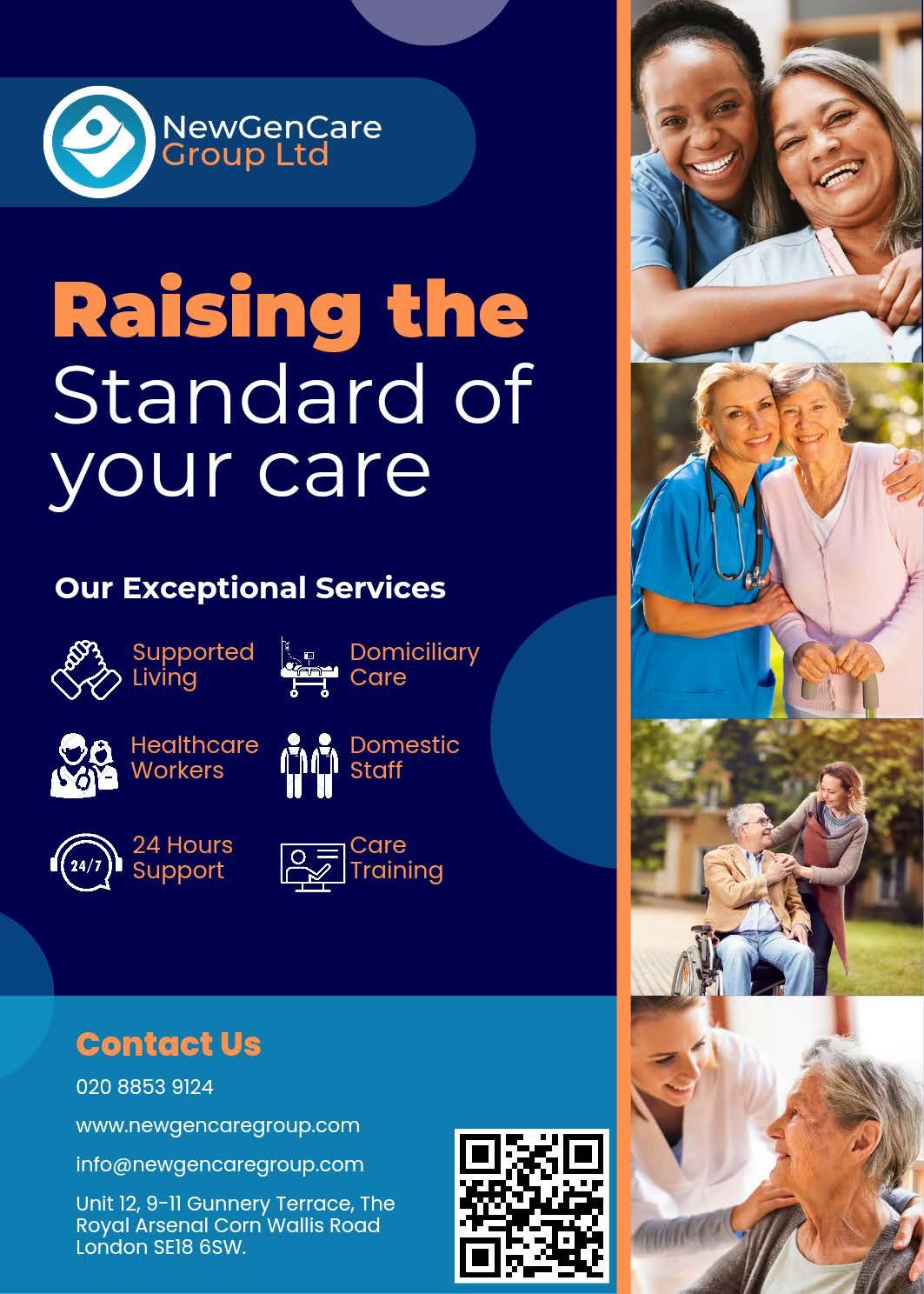
UK employers who want to hire skilled individuals from anywhere outside the UK are faced with a myriad of additional legal and bureaucratic hurdles. These include the requirement of applying for and managing
a sponsor licence just to be able to hire from outside the UK. The company’s status is audited by the Home Office and each new hire requires a UK work visa.
Obtaining the necessary licences, certificates and visas is time-consuming, confusing and expensive, with cash-strapped employers having to pay the Home Office, international recruitment agencies, immigration advisors and relocation experts to verify the legitimacy of the foreign worker and their skill set and assist with the complex process. Thus, many companies do not want to enter this complex process leaving them without vitally needed workers and overworked existing team members. The pain will not disappear and new technology should be introduced to ease the gap of shortages in the labour field urgently.
On the other hand there are plenty of talented carers abroad who aspire to work within the UK care sector. Over one in ten new arrivals to the UK last year ended up working within the care sector. And even though immigration from the EU has changed, there is a new opportunity to look at other workers from other countries
outside of Europe.. Currently, a whopping 90% of migrant care workers are actually from outside the European Union, proving the depth of the foreign talent pool.
There is some light at the end of the tunnel, however. Care workers were added to the shortage occupation list for the first time in February of last year, thanks to successful lobbying and due to the severe issues faced by the sector that were highlighted by the pandemic. Now, overseas care workers can come to the UK, as long as they earn a salary of at least £20,480 for 30 hours a week and their employer has a sponsor licence.
Once taught how to navigate these procedures, we believe that quality nonUK applicants will help save the care sector in its time of crisis by connecting potential applicants from across the globe with unfilled positions in the UK in a process that is fair and balanced and that promotes diversity and skills wherever possible. The issue here is not immigration but integration, which is currently hampered only by the bureaucracy of borders.
28 ISSUE 105 | WWW.CAREANDNURSING-MAGAZINE.CO.UK
RECRUITMENT
Photo Credit: David Scouri
Bliss recruitment offers quality staffing solutions to care services across the country to ensure safe staffing levels are met for your services

All of our staff have a minimum of 6 months care experience.
At Bliss we guarantee:
Competitive charge rates



Staff on site within an hour of booking
24/7 on call service
Dedicated office team

All staff are fully trained including MAPA
A full Permanent recruitment service A company driver to ensure staff arrive on shift safely & on-time
WWW.CAREANDNURSING-MAGAZINE.CO.UK Bliss
99 Walton
L9
Recruitment
Vale, Liverpool,
4SR
We are an award winning recruitment agency providing quality healthcare professionals Please call 0151-459-4050 or email admin@bliss-recruitment.co.uk for more information.
☑ ☑ ☑ ☑ ☑ ☑ ☑
So, why do care providers have a blind spot when it comes to new fresh innovative methods of dealing with age old recruitment and staffing problems? It is fair to say that the sector was in a tough place in 2019. There were already funding issues, Fee discrepancies and challenging staffing levels, there were issues related to attracting new blood and making a job in care genuinely attractive to more than those who were fiercely vocationally driven.
Brexit happened, then Covid happened, it couldn’t get any worse. Then of course the double Jab debacle that left an industry on its knees needing a standing count.
So, what did the vast majority of care providers do? They continued to lose staff, they continued to rely on job boards such as Indeed – poor response, poor quality, even less success when it came down to the return on investment in both time and finance with very little guarantee of a successful hire and more importantly retention. So, many would be forced to turn to the plethora of Care agencies out there. Short term fixes, a limited pool of agency staff registered with a multitude of “pile it high sell it cheap” agencies only interested in winning business and filling shifts. We then had the addition of the bigger Panel / framework based models. Seemingly positive in terms of “apparently” reduced admin, more “quality control”, less agencies bombarding you, capping commission……it all sounds too good to be true…..because it is. Those panels, result in a bun fight for the mercenaries who couldn’t care less about quality, customer service, relationships and understanding. Most never speak to the clients they serve, they operate via on line recruitment portals and shifts are covered over email. Driving rates to the floor but at what cost?
It is undeniable that it has created a “compliance tick box culture” where those agencies may well be able to navigate the panel requirements, be happy to fill shifts at insulting rates and be content to become mere arms and legs fillers…….this industry, our clients and service users and our parents and siblings in the future deserve better. It may be true that for national care companies to adopt this type of procurement process may seem advantageous, it allows the national
agencies to work on economies of scale…..sacrifice margin to guarantee volume across a huge network, but locally? How does that benefit local providers and local suppliers in niche areas where local knowledge, local expertise and visibility are key?
How do we achieve some grand old standards of genuine customer service, understanding and building long standing relationships, discussing difficult problems with experts and challenging the status quo on how to deal with perceived crisis issues?
Well, you look at the data. Care jobs are seen as second class “I’m just a carer”, there is perceived lack of progression, there is negative rhetoric about pay rates and pressures. There is a negative story about Care on virtually every news and current affairs show weekly. But it just doesn’t have to be that way.
Fairway Homecare in partnership with Embark Learning Care Academy have been destroying the myths across the West Midlands for nearly 7 years and the project is gaining momentum.
The partnership is based on providing people with a genuine access to a Care Career, a starting point with genuine progression routes from Level 1 all the way to Level 5 in elderly Care, Learning disabilities, Mental Health and anything in between. To give vocational people the core theory and practical skills to enable them to embark on their career journey and making a significant difference too many hundreds of lives.
The academy started with just 50 odd learners in year one. Just last month the partnership celebrated their 2000th successful qualified learner through the academy and most excitingly, almost 700 of those 2000 came though the academy in 21-22. This year, they are already on target to achieve 1000 learners in the academic year alone. The momentum is flying, the infrastructure in place and the results tangible.
The unique “My Care Portfolio” is a hugely successful 3 week training programme filled with practical and best practice units, formal qualifications and a focus on digital skills. It’s all classroom based, it is all delivered by care professionals, it is all delivered with the vision of the start of a journey not the end.
The achievement rates are staggering at over 98%. More impressively, almost 78% of the learners receive
formal job offers (not just guaranteed interviews) and most impressively, there is over a 65% sustained employability achievement rate meaning more than 2 in 3 are still in meaningful employment over 3 months later.
This has led to a rocket fuel growth trajectory for Fairway Homecare. Already a successful provider of healthcare professionals across the west midlands, they have grown from providing 4500 hours per week in 2021, to almost 7000 hours per week. They have an impressive and industry busting 84% of staff holding formal care qualifications and over 80% of the staff are now completely home grown with the Academy. This means Fairway have a staffing team with best practice, no bad habits and up to date skill sets including digital skills at its disposal. Fairway partner with over 150 individual care locations across the midlands and effectively act as the bridge from the academy in to employment. The unique wrap around service, the emphasis on resilience and positive mental health means that Fairway and Embark achieve staggering success in introducing new carers in to the sector and KEEPING them there.
Fairway and Embark passionately believe that they have a model that can solve the care staffing crisis in the west midlands and beyond whilst driving standards and providing generation 2.0 in regard to qualified Care professionals armed with digital skills as well as a positive outlook on genuine long term career development.
The thought of care providers even contemplating overseas sponsored recruitment for health and social care positions is utterly remarkable. Care home providers, owners and managers need to engage in an innovative proven and rewarding programme that is set to establish the west midlands as a leading light in meeting the challenges of the health and social care sector for many years to come.
If you would like to know how to access nearly 750 newly trained healthcare professionals this year, fully care certificated and qualified and ready to go;
For further information on the Care Academy and Fairway Homecare please visit; www.fairwayhomecare.co.uk
www.Embarklearning.co.uk
30 ISSUE 105 | WWW.CAREANDNURSING-MAGAZINE.CO.UK RECRUITMENT
“ Insanity is doing the same thing, over and over again, but expecting different results. ” — Albert Einstein.
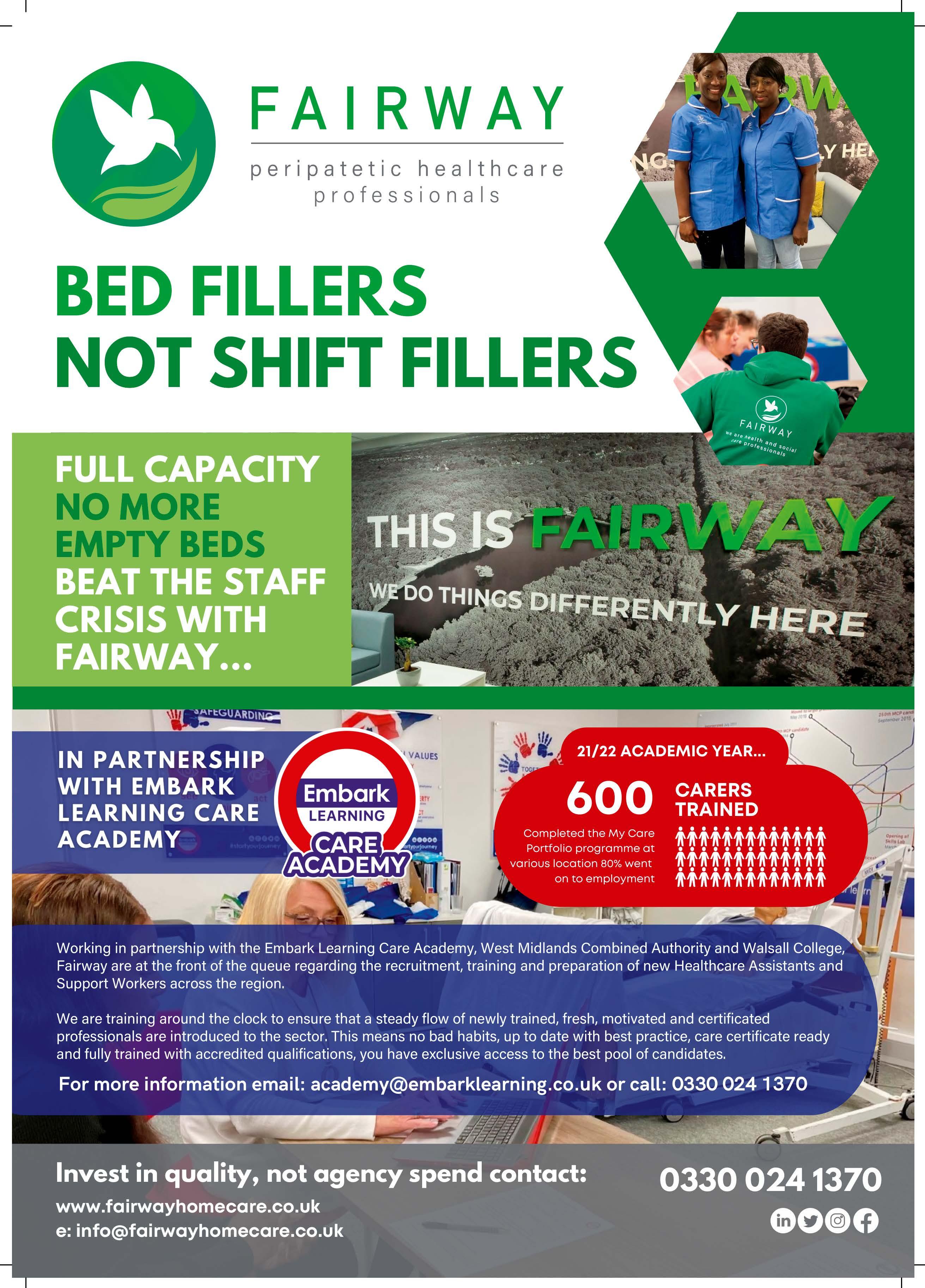
Healthcare recruitment agency achieves prestigious accolade from the Priory








Healthcare
Conducted on behalf of Priory by Neuven Solutions on 17th March, the annual audit qualifies Tezlom to be one of only five trusted agency suppliers to provide temporary nursing and care workers to its hospitals and other services across the UK.


Tezlom has been working with the Priory since 2018, supplying temporary agency workers for healthcare roles in the North West and surrounding areas. This new status builds on the partnership and is testament to the hard work and commitment displayed by Tezlom over the last 12 months, ensuring it continues meeting the highest possible standards of staffing and compliance for their services.
“This is an incredible triumph for Tezlom and we feel so proud to be recognised for all our efforts over the past few years,” said Ryan Armitage, Tezlom Director.
“As with Priory, investing in and developing our workers is central to our vision and values. We’re committed to providing them all with a fulfilling and rewarding work environment where they feel they can make a real and lasting difference to everyone they care for and work with. We’re honoured to be recognised for the time and resources that we’ve invested in Priory.”
For more information about Tezlom and its franchise opportunities, visit www.tezlom.com/

32 ISSUE 105 | WWW.CAREANDNURSING-MAGAZINE.CO.UK CLEANING & HYGIENE Request an onsite demonstration www.duplex-cleaning.com 01227 771276 Fax 01227 770220 info@duplex-cleaning.com Unit 27 Joseph Wilson Ind. Est Whitstable, Kent, CT5 3PS. High Performance Cleaning Machines Free on-site demonstrations Clean and sanitize with steam Multi-surface steam cleaning Light and easy to use Combine cleaning with infection-control Robust and reliable Nationwide sales and service support Free on-site training & installation
recruitment agency, Tezlom, is delighted to announce that it has achieved the prestigious Elite Audit Status by the Priory, the leading independent provider of mental healthcare and social care in the UK.
Photo Credit: Tezlom








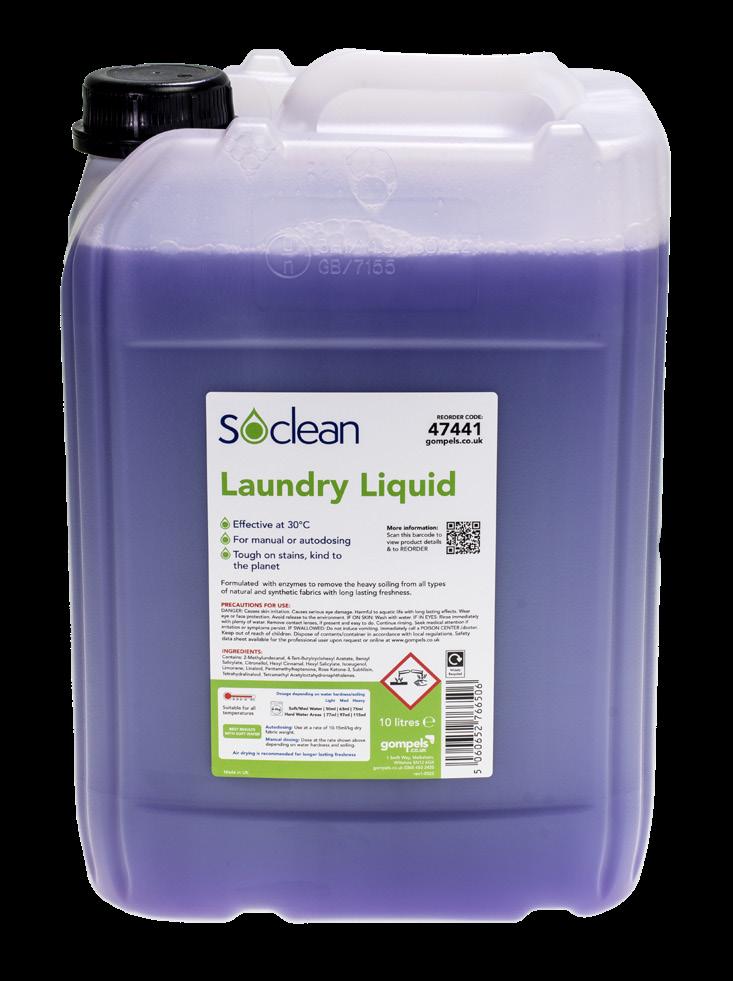
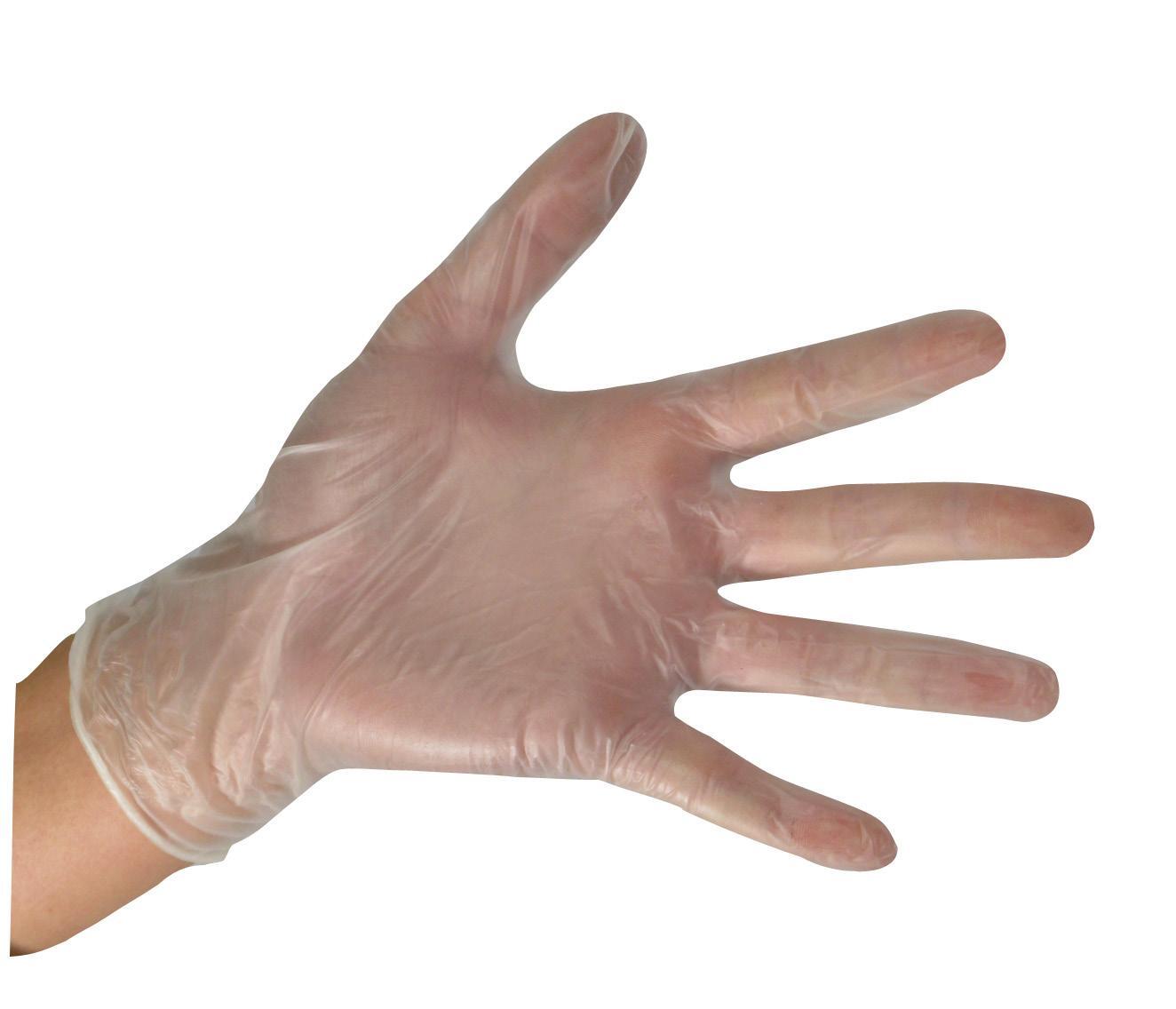
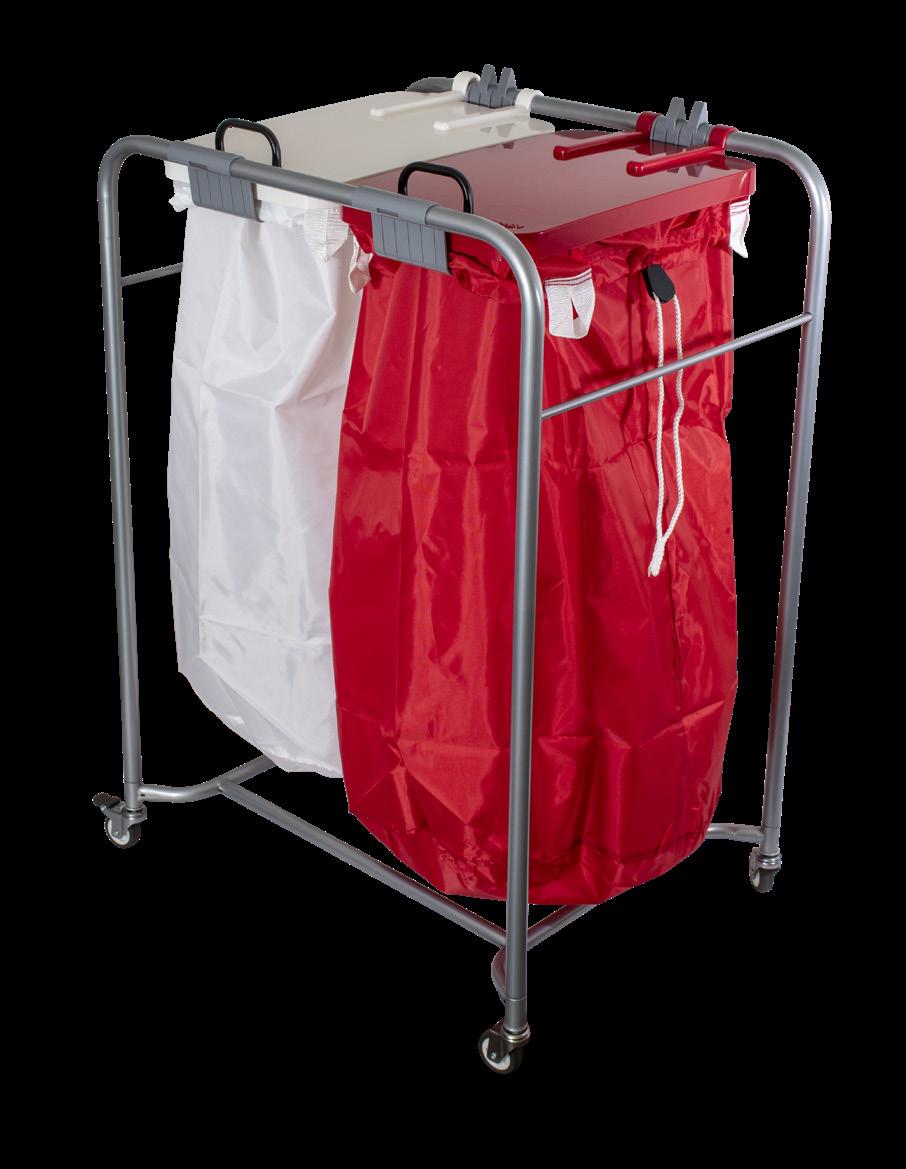




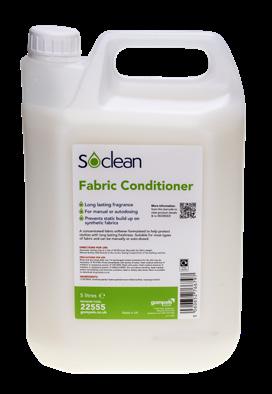
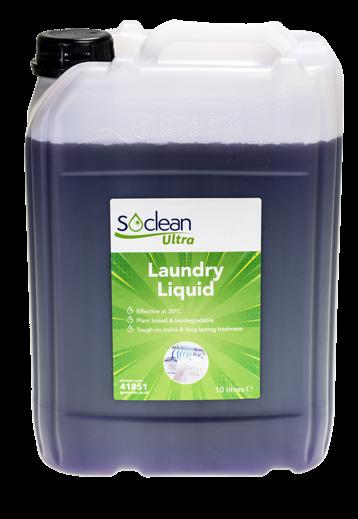

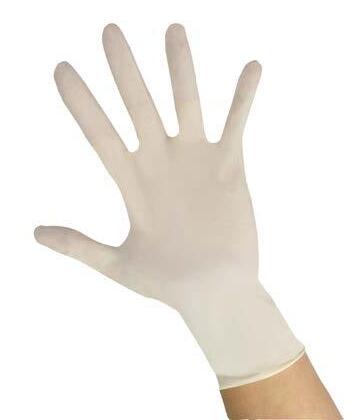
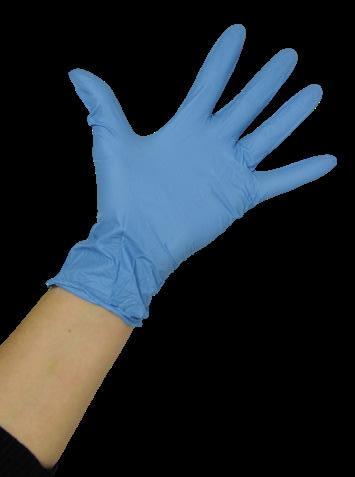

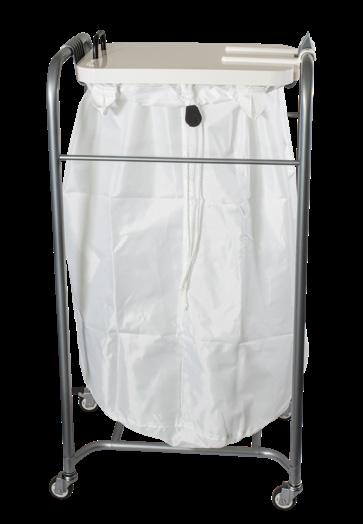
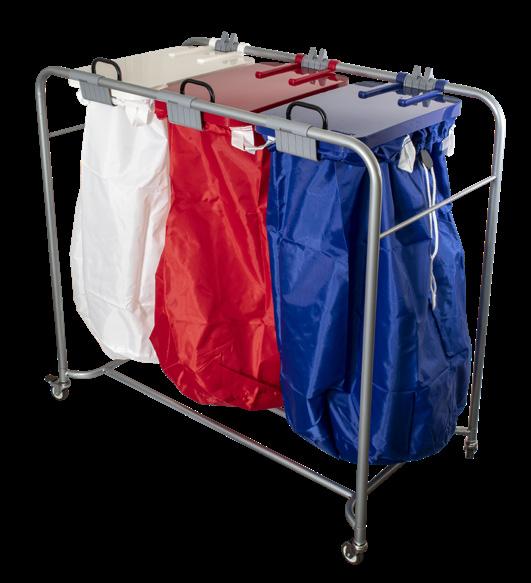
33 WWW.CAREANDNURSING-MAGAZINE.CO.UK Why not email us and have a chat about autodosing keyaccounts@gompels.co.uk buy 1 get 1 HALF PRICE only £6.75 Per 200 Red Soluble Strip Sacks 99893 & Fresh 100% IN STOCK* MORE ONLINE WWW.GOMPELS.CO.UK *100% of core lines in stock on 01/02/2023 - You can ask us for an update! Please see website for latest prices. Prices correct as of 1st February 2023. E&OE Nitrile £4.69 Per 200 Gloves Latex £3.29 Per 100 Gloves Vinyl £2.29 Per 100 Gloves buy 1 get 1 FREE only £5 Per 10 Litre Laundry 99892 buy 1 get 1 HALF PRICE only £76.84 Per 2 Bag Trolley With Lid 99894 LOWER Glove Prices For Every Customer Laundry Trolley - 1 bag £82.05 each 33674 Laundry Trolley - 3 bags £122.86 each 46712 Laundry Trolley - 4 bags £143.26 each 39644 Laundry Liquid £5 Per 5 Litre 56576 Ultra Laundry Liquid £24 Per 10 Litre 41851 Ultra Fabric Softener £11.50 Per 10 Litre 65944 Fabric Softener £4.49 Per 5 Litre 22555 PRICE DROP Vinyl £1.99 Per 100 Gloves
With over 50 years of experience, ICE is the
UK’s largest independent provider
of industrial cleaning equipment
We manage all your cleaning equipment and servicing requirements, offering total peace of mind.
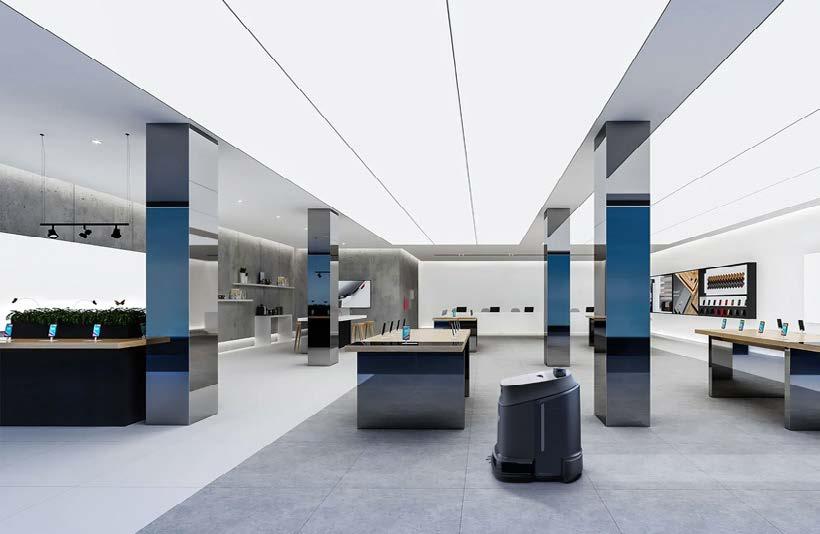
Our one-stop-shop offering provides everything relating to cleaning equipment purchase, rental, lease, maintenance, and

management. We supply and service a huge range of cleaning machines to suit every need and budget – from low cost robust equipment, through
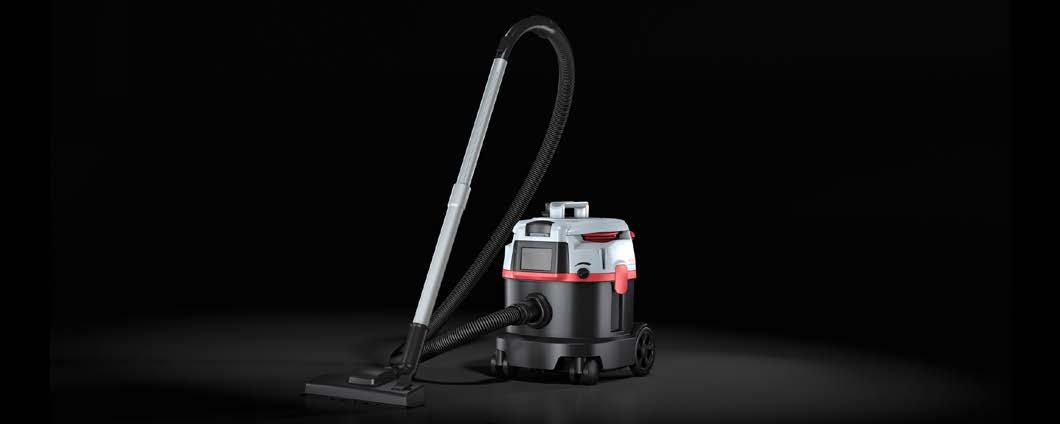
to high end machines packed with innovative technology and features. We offer a nationwide service with a team of highly skilled engineers dedicated to keeping your cleaning equipment up and running, and a specialist training team who ensure cleaning operatives can confidently use and maintain the machines.
ICE is part of the NHS framework, meaning that both our latest innovations and core range of equipment
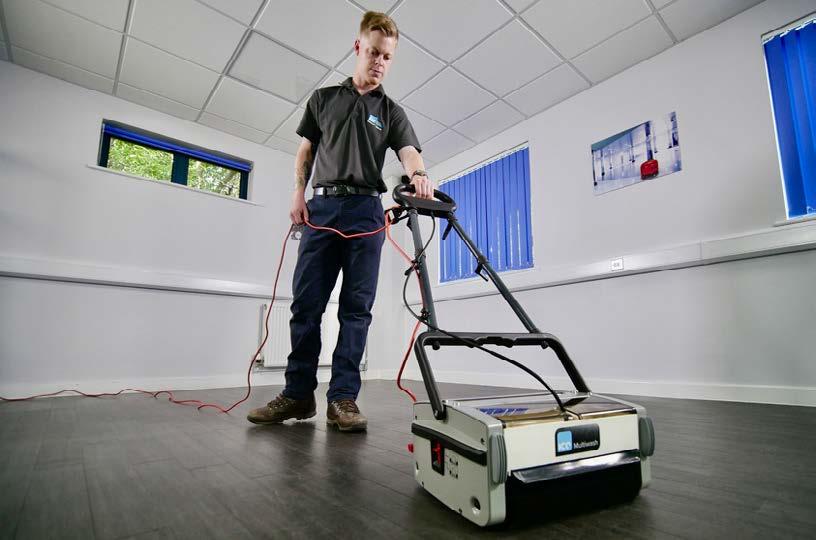
are widely available to be utilised within this sector. We continuously review our product range, and the benefits and opportunities they offer our customers, in order to be able to fulfil a complete solution. It’s this investment in the key technology advances, both in equipment hardware and virtual know how that help us support our customers.


CONTACT:
(t) 02380 777000
(e) enquiries@ice-clean.com
(w) www.ice-clean.com
34 ISSUE 105 | WWW.CAREANDNURSING-MAGAZINE.CO.UK CLEANING & HYGIENE / INCONTINENCE www.ice-clean.com enquiries@ice-clean.com SERVICE THROUGH INNOVATION ICE is the UK’s largest independent provider of industrial cleaning machines, providing everything from equipment purchase or rental to asset management and maintenance. OVER 50 YEARS OF EXPERIENCE IN CLEANING EQUIPMENT SUPPLY & SERVICING! Over a decade of experience in robotics Wide range of sustainable solutions Over 45 nationwide engineers WE HAVE A SOLUTION NOT MATTER THE PROBLEM! Chemical Free Cleaning Robotics Range Multi-purpose Equipment Low Noise Level HEPA Vacuums Reporting & Telemetry
Photo Credit: Sprintus





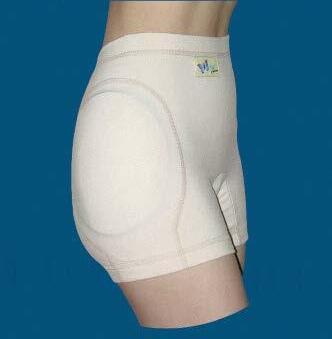
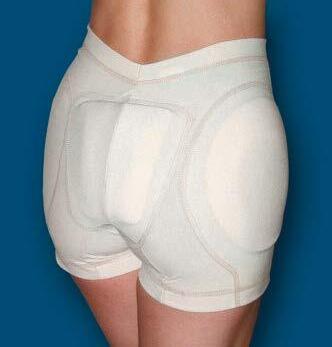
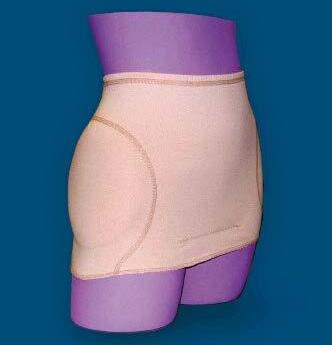
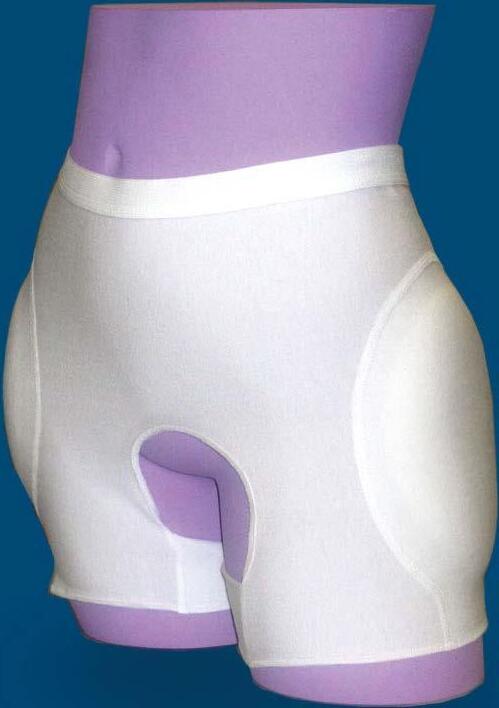



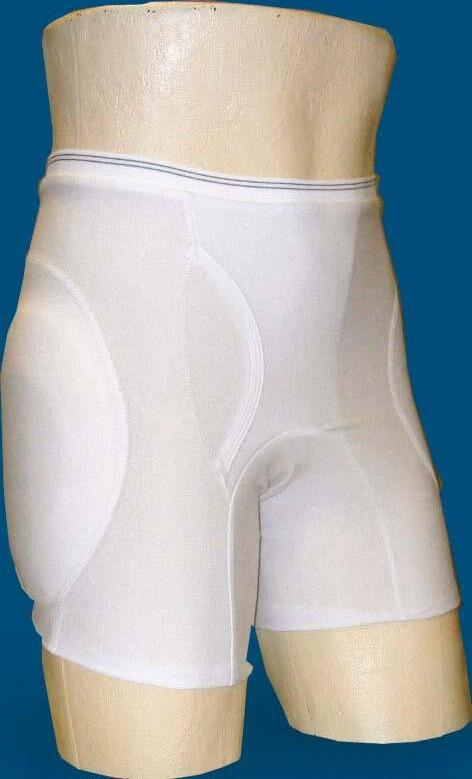
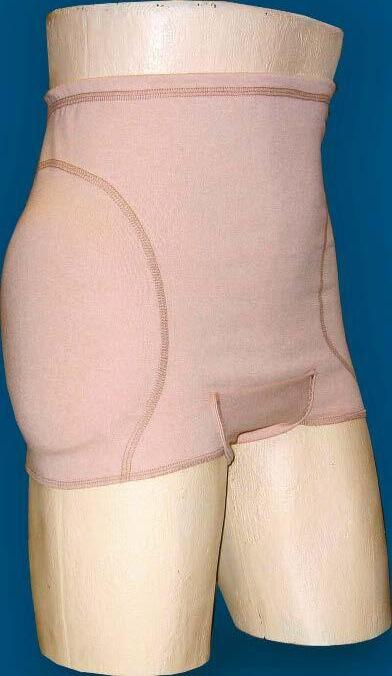
ISSUE 105 | WWW.CAREANDNURSING-MAGAZINE.CO.UK I N N O V A T I O N - S U P P O R T - Q U A L I T Y - C H O I C E - V A L U E Adaptive Trousers for Older and Disabled People • Dignity and Comfort Ever y Day • Versatile Pants for All Occasions • Easy Dressing with 3-Zip System • Continence Care Friendly Pants • Practical Easy Care ‘Wash and Go’ CareZips® Classic – Elegant Functional Adaptive Trousers Win Health Medical Ltd. Unit 1, Oxnam Road Ind. Est., Jedburgh, TD8 6LS T: 01835 864866 info@win-health.com www.win-health.com CareZips® Classic Helping you to care C 999 Ce Cer Cert Certi Certif Certifi Certific Certifica Certificat Certificate N No E EM EM2 EM20 EM200 EM2000 EM20009 EM200099 EM2000999 ISO 140 1 IS 1 14 1400 14001 Helping you to care I N N O V A T I O N - S U P P O R T - Q U A L I T Y - C H O I C E - V A L U E Win Health Medical Ltd Unit 1, Oxnam Road Ind Est, Jedburgh, Roxburghshire TD8 6LS Tel: 01835 864866 Fax: 01835 268136 Email: info@win-health com Website: www win-health com C t i N EM2000999 Ce Cer Cert Certi Certif Certifi Certific Certifica Certificat Certificate No No. E EM EM2 EM20 EM200 EM2000 EM20009 EM200099 ISO 14001 IS 1 14 140 1400 Protecting Elderly People from Fall-Related Hip Injuries Tested, validated, proven effective, user friendly and affordable protection for vulnerable people at risk of fall-related injuries. HipSaver Soft Hip Protectors
Manfred Sauer UK Ltd
Since 1976, Manfred Sauer UK has provided a range of innovative urology products to help sufferers of urinary incontinence. But unlike other providers, our products are often designed and tested with input from end users and healthcare professionals to ensure effective and userfriendly solutions that work.

Listed below are some of our products, all available on prescription:
Sheaths







We offer five different types of urinary sheath to facilitate the drainage of urine away from the body into a drainage bag.
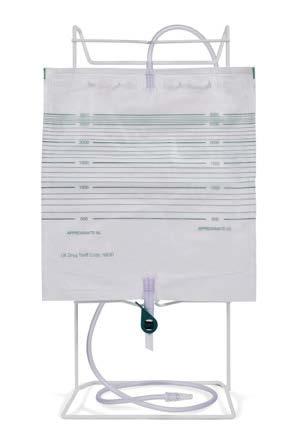

Leg bags
We supply four main types of leg bags with varying capacities:





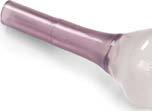





• Discreet Thigh Bag can be worn high up on the
thigh area and hidden under clothes.
• Bendi Bag is ideal for wheelchair users who can sometimes find toilet access difficult.
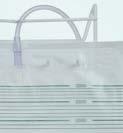
• Comfort Leg Bag range comes in a variety of materials from velvet smooth, real cotton and flock backing.
• Children’s Bag with smaller capacity and proportions.

Catheters


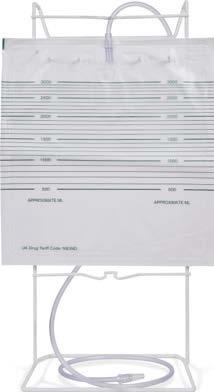




















When performing ISC you need something that is simple to use, soft and flexible. Our IQ-Cath male, female and paediatric singleuse catheters are ready for use immediately and the protective sleeve on the male and paediatric catheters facilitates a no-touch technique.
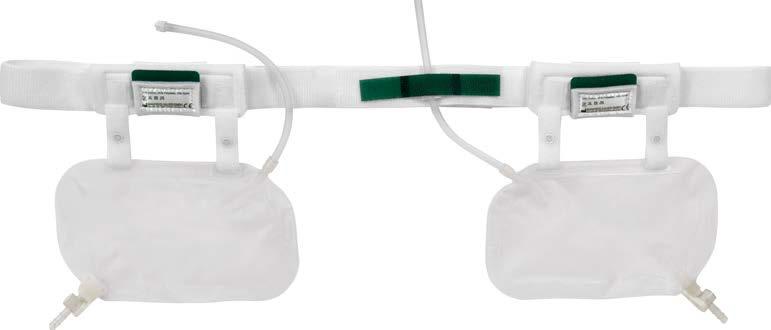
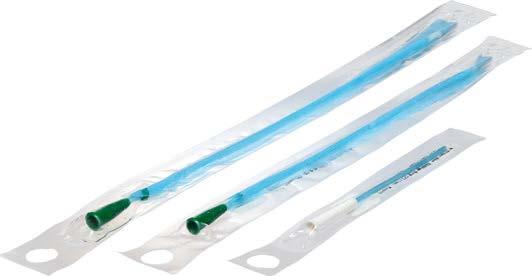
NephSys bag and belt system
For people who have had a Nephrostomy, NephSys can drastically improve their lives. As well as providing a secure and sterile solution, the system is comfortable and discreet.

We are a manufacturer and supplier of high quality, innovative continence care products that have unique features and















































































































































designed with input from patients and healthcare professionals.



36 ISSUE 105 | WWW.CAREANDNURSING-MAGAZINE.CO.UK INCONTINENCE Products available include: • Catheters and accessories • Urinary sheaths and accessories
Leg bags and Night bags • NephSys bag and belt system
Urinals
•
•
For more information or sample requests, please contact the helpline on: 01604 595 696 quoting CNE105 or email helpline@manfred-sauer.co.uk
benefits
Contact our helpline team on 01604 595 696 or visit www.manfred-sauer.co.uk for more information about
product
free sample.
each
or to order a
Photo Credit: Manfred Sauer UK Ltd



You want the highest levels of safety and wellbeing for your patients, whilst balancing your budgets to get the best care for as many people as you can. We research and develop products to make those choices easier for you. Compare for yourself Order samples by calling 0808 301 2006 email info@clinimed.co.uk visit clinimed.co.uk CliniMed Ltd. Cavell House, Knaves Beech Way, Loudwater, High Wycombe, Bucks HP10 9QY Tel: 01628 850100 Fax: 01628 527312 Email: enquiries@clinimed.co.uk Web: www.clinimed.co.uk CliniMed®, CliniSure® and CliniFix® are registered trademarks of CliniMed (Holdings) Limited. ©CliniMed Ltd 2023. PID 10837 Catheter securement choices couldn’t be easier... Securing strap for leg or abdomen fitted catheter Hook and loop adhesive securing device or Helping you to care for your patients Easy on your budget Kind to the environment
Low Surface Temperature Heaters
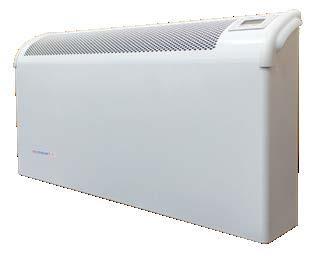

Available
• Ideal for hospitals, care homes, schools and nurseries.

Comply with NHS Estates Health Guidance Notes where a maximum surface temperature does not exceed 43°C.
• Available in various kW ratings.
• Various heating control options available:
• Consort Connect app



• Integral electronic 7-day timer
Run-back time controllers
• Advanced wireless controllers

• BIM components available for panels and fan heaters.
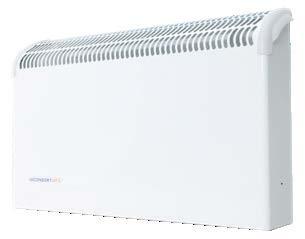
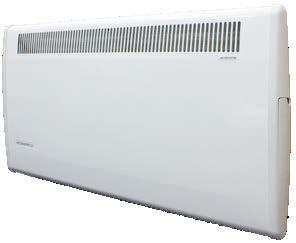
01646 692172
Consort Claudgen includes Wi-Fi enabled heaters in LST range
Consort Claudgen’s low surface temperature heaters range now includes heaters that are Wi-Fi enabled. These heaters connect directly to Wi-Fi and heating can be controlled from the digital control panel on the heater or Consort Connect app. Features include a 7-day timer with 24 heating periods per day, lock function, open window detection and custom automations. Users can also view the energy consumption statistics of all connected heaters. Additionally, LST heaters with Wi-Fi and occupancy
Innovative new robot set to revolutionise food service in care homes
Bear Robotics is launching Servi, a robot that can help hospitality and care home businesses, assisting staff by utilising AI and autonomous robot technology to serve drinks and food and clear tables.
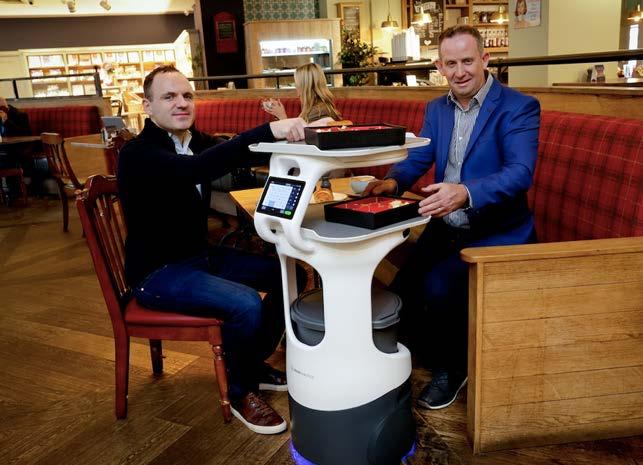
This, in turn, allows waiting staff and care home employees to focus on spending quality time and delivering outstanding service to customers and patients.
Servi can be programmed to learn different table locations and is 100% self-driving. Built with an advanced LiDar sensor and multiple cameras, Servi navigates space intelligently, safely and with ease. Once the food and beverages have been delivered, Servi
automatically knows to return to its post through internal weight sensors and the robot can be used in conjunction with other Servi models in multi-robot mode.
The launch comes at a time where staffing shortages continue to negatively impact the hospitality and senior care industries and will provide welcome assistance to staff.

Malachy Ryan, Head of Sales EMEA with Bear Robotics, said: “Our robot Servi helps staff to do their jobs more efficiently and
helps make conditions more pleasant. Servi is suitable for restaurants and nursing homes in terms of delivering food to tables and to rooms. For example, Servi will reduce mundane tasks for staff like carrying dishes to and from the kitchen to tables that are on the other side of the restaurant or down long corridors in nursing homes.

“We’ve seen over the last few years that there’s a huge staff shortage problem in the hospitality sector. We want to bring the best service
sensor have a self-learning control ability which uses in-built occupancy sensors to detect and learn a user’s weekly presence in a room. It then creates a heating schedule and automatically warms the room according to the detected or predicted occupancy. When the room is unoccupied, the heater will conserve energy by switching to a setback temperature or frost protection mode.
BIM objects are available for download from Consort’s website.

01646 692172 | sales@ consortepl.com | www. consortepl.com
possible to businesses in these industries and elevate their customers’ experiences. There is a fear that staff will be replaced by robots but they are there to lend an extra helping hand.”
Servi can be bought directly from Bear Robotics or rented for a monthly fee. For more information on Bear Roboticssee www. bearrobotics.ai. Meet Servi here - https://www. youtube.com/channel/ UCTqwfnfNQCCeRu3hT66ljDw
38 ISSUE 105 | WWW.CAREANDNURSING-MAGAZINE.CO.UK HEATING / CATERING
sales@consortepl.com www.consortepl.com
in panel and fan heaters including, slimline models, and towel rails.
NEW
Find out more about our LST range on our website.
Photo Credit: Consort
Photo Credit: Bear Robotics
Cost and Efficiency
Given the current climate saving costs and maximising budgets and efficiencies are at the top of many care homes list of priorities.
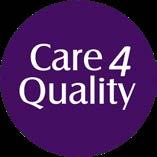
The sector is also continuing to deal with significant ongoing labour shortages. Last year there were 165,000 vacant roles in the UK care sector; a massive increase of 52% since 2020/2021. It’s clear that recruitment and retention difficulties are not going away anytime soon.
This means that right now, care homes are looking for ways to serve tasty and nutritious food on evertightening budgets, with minimal labour requirement.
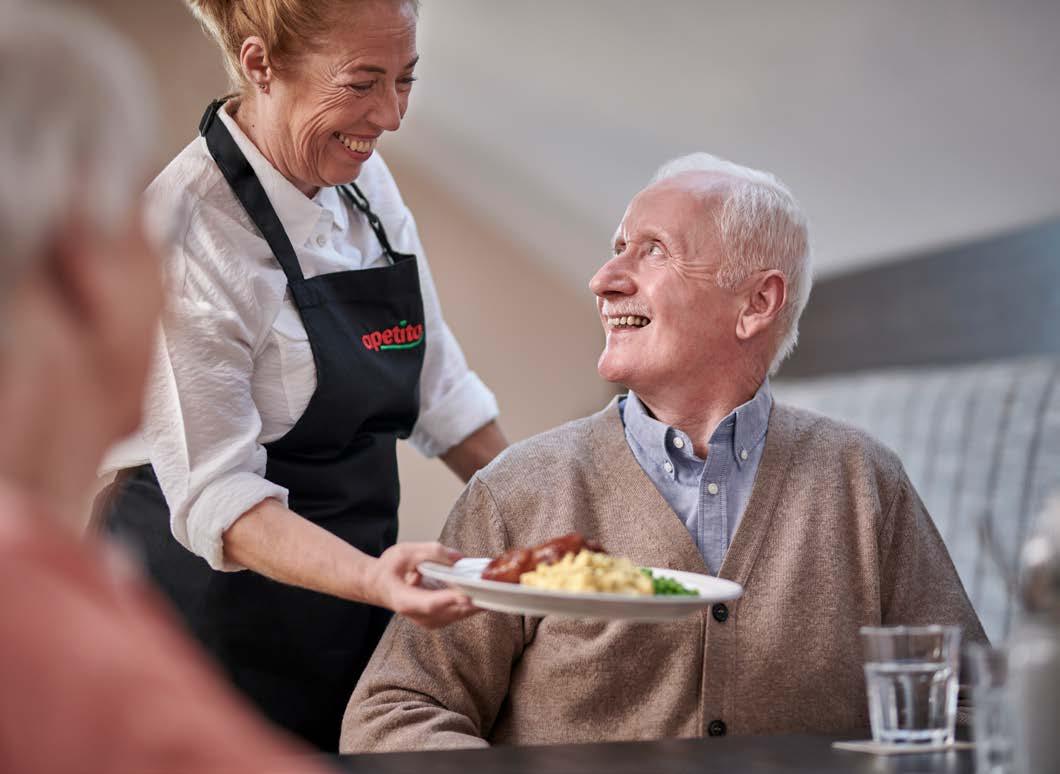
Opting for a pre-prepared meal service, like apetito allows care homes to have full transparency of costs
whilst still serving residents great tasting meals that meet a wide range of nutritional needs.

Staff can all cook the meals easily from frozen, meaning that with some initial training, the complexities of managing kitchen staff and time spent in the kitchen can be significantly reduced. apetito’s service can more than halve the time spent in the kitchen - a huge time saving compared to cooking from scratch. Furthermore, it means staffing resources can be devoted back to frontline care, an additional benefit to residents.
Switching to apetito can help care homes manage
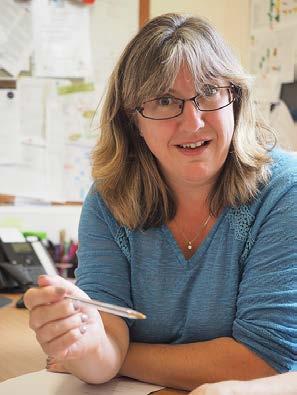
Temporary Catering Facilities During

costs, and significantly reduce staffing requirements and meal preparation time without compromising on quality.
Discover more about apetito’s care homes service by calling 0808 239 2399 or visiting https://apetito.link/ CNE
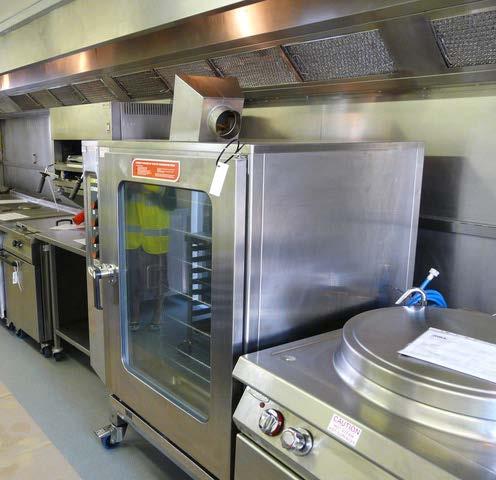
39 ISSUE 105 | WWW.CAREANDNURSING-MAGAZINE.CO.UK
Refurbishment Mobile Kitchens Ltd specialises in the hire of temporary catering facilities and foodservice equipment We offer a free design service, and project management from concept through to delivery and installation on site, plus full technical support throughout the hire period. Email: sales@mk-hire.co.uk Call: 0345 812 0800 or visit www.mk-hire.co.uk
Sectors •Care homes •Nursing homes •Domiciliary care •Support living •Respite •Mental health services •Complex care Services •Mock CQC inspections •Auditing (health and safety, good governance, internal) •Action planning •Enforcement action support •NOP/NOD support •Factual accuracy challenges •Ongoing compliance support •Crisis management •Registration •Policies and procedures Tel: 01579 324787 | Email: helen@care4quality.co.uk | Web: www.care4quality.co.uk Care 4 Quality, Health & Social Care Consultants. Our services are tailored to your needs. Covering England, Scotland, Wales & IoM, we can offer a range of specific expertise to suit your service. CATERING / HEALTHCARE MANAGEMENT
Photo Credit: apetito Ltd
Why the Cost-of-Living Crisis is a Crisis for Care
By Amrit Dhaliwal - CEO,
The cost of living crisis affects us all, but in the care industry, its effects are particularly stark. An estimated 10,000 people die as a result of living in cold homes in the UK every year – but what will that number look like this year when people decide to turn the heating off if they can’t afford soaring gas and electricity bills?
Many of our clients are already telling us that they are turning their heating down or even leaving it off altogether. They are extremely worried – and as care suppliers, we should be too.
According to the group National Energy Action (NEA) some 10% of the deaths (over 3,000) are directly linked to fuel poverty. This crisis affects our core customers: people with limited mobility, people with chronic illnesses and with disabilities. Older people with pre-existing conditions such as cardiovascular problems or respiratory illnesses are most at risk. Mental health can suffer too, as a result of worry and isolation.
Rising food bills also mean people on limited incomes are cutting back on food
Home Finance
Walfinch
spending, risking inadequate or poorquality diets.
Nobody in the care sector can be unmoved by this. The satisfaction of improving lives by tackling poor health and wellbeing are the reasons we work in this sector. Providing these services also allows us to run profitable businesses and keep thousands of carers in jobs.
We face a business crisis too
The cost-of-living crisis also threatens our businesses. Care is generally way down the list when individuals and families are looking to make expenditure cuts – but for some people, who buy care privately, reducing the hours of care they pay for may become necessary. If this happens, our businesses will suffer. Fewer client care hours mean less income.
Even where the local authority is paying for client care, things are not much better. Local authorities are starved of cash too. The Homecare Association announced that its new calculation for the minimum price for homecare effective from April 2022 is £23.20 per hour, but some local authorities do not pay enough per client to allow providers to pay carers properly and still make a profit. No-one wants to deny clients care, but increasingly providers are turning down work for local authorities because accepting it would mean making a loss – no good for anyone.
The cost-of-living crisis affects carers too. Some are leaving our industry in search of a higher income, taking their caring attitudes and superior people skills into other sectors, and in the process making the carer shortage even worse.
For all these reasons, care sector leaders cannot afford to ignore the costof-living crisis. But what can we do about it?
More than just shouting
There’s no shortage of people shouting about the cost-of-living crisis. But while this may help spread awareness (and sometimes panic), it does not deliver much practical help on an immediate basis.
In the care industry, we need to do more than just shout. As well as lobbying our MPs to try to force the Government to take more action to help, we need to
find practical ways to help our clients, our care teams and ultimately our businesses, to cope with this.
Look at what your business can do

As care sector leaders, we must step back and look at what our businesses can do to help our clients and care teams weather this winter’s economic storms. We can’t hand them wads of cash, or provide free care, much as we might want to. This is a new situation and it requires new thinking – but that’s one of the things many care sector leaders are good at.
Things we can do
Think about what your business can do to maintain healthy lives for your clients and keep your business healthy too. The solution for every business will be different.
At Walfinch we decided to offer information to clients about their rights when it comes to bills and benefits, so instead of living in fear, they could manage their own situations. We created a leaflet that sets out sources of help and information and are making it available to our local offices so that it can be printed out and handed to clients by carers (who will be free to read it for themselves of course).
One of the main points it makes is that it’s not always necessary to pay energy bills in one go.
Energy suppliers have a duty of care to help people struggling to pay their bills. The number to call is on the back of their bills and on their websites. People could be offered the chance to pay bills in smaller, affordable chunks, over longer periods, leaving them more money for heating, food, and of course, the care that they need.
Our leaflet also includes numbers and websites where people can check whether they are entitled to benefits, and where they can find out how to claim, hopefully providing more money so they can carry on heating, eating and getting the hours of care they require.
We’re not using this information as a competitive tool - it’s available on our website for anyone to read.
What are you doing?
The cost-of-living crisis affects everyone in the care sector. Leaders need to think about their response. Sitting on our hands is not an option.
40 ISSUE 105 | WWW.CAREANDNURSING-MAGAZINE.CO.UK
against full market value up to 80% funding - 80% for high quality modern purpose built - 75% for high quality converted homes - 70% for older style converted homes - 70% for first time buyers - 65% for homes with 'requires improvement' rating - 100% for extensions and purchasing further homes Repayment profiles of up to 25 years available Fully sanctioned facilities before valuations then subject to valuation and legals Call: 01242 227172 E-Mail us at: mvhwiddows@aol.com www.globalbusinessfinance.net FINANCE
Care
Assisted Visit Joerns.co.uk
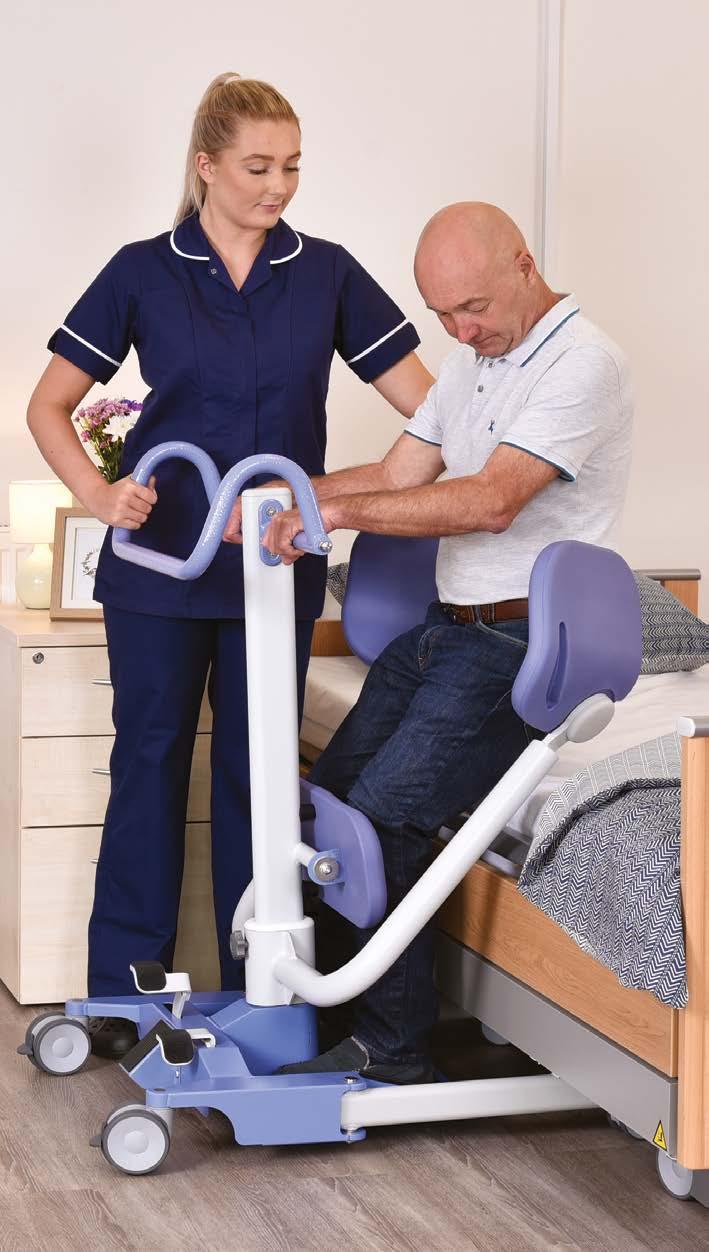

REFURBISHMENT / MOVING & HANDLING



Safe working load 200kg / 31st / 440Ibs
Disassembles for storage/transportation
Multi-point, contoured push handle
Contoured swing-away seat pads
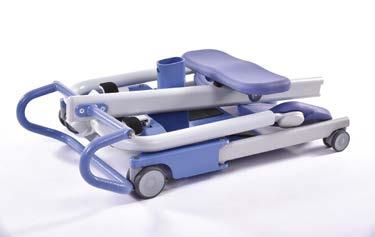
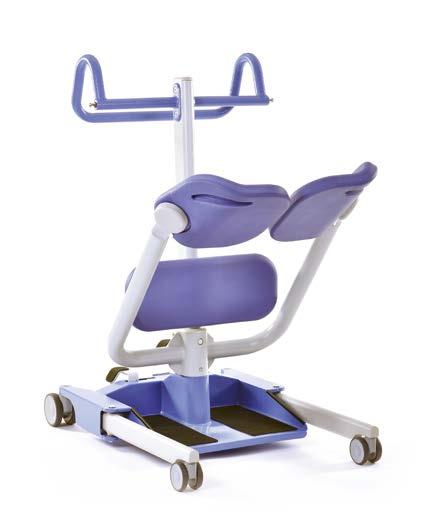
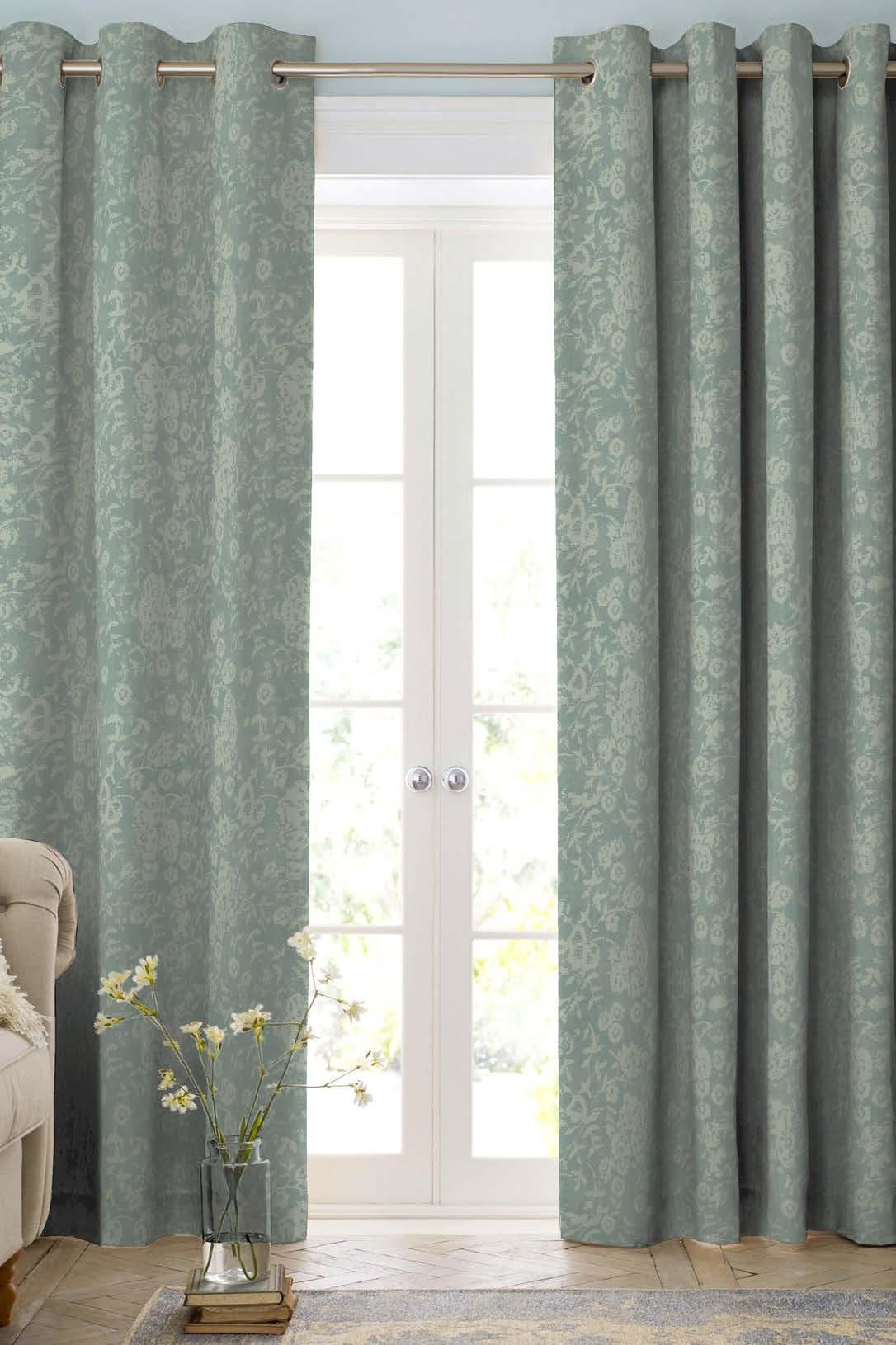
Simple on-going maintenance

Standard 5 year warranty


41 ISSUE 105 | WWW.CAREANDNURSING-MAGAZINE.CO.UK FR Fabrics & Furnishings for Caring Interiors sales@skopos.co.uk Tel: 01924 436 666 | www.skoposfabrics.com Design • Measure • Make -up • Install CURTAIN & BLIND SOLUTIONS We supply and fit curtains and blinds using NHS compliant fabrics mrtrax.co.uk | E: mrtrax001@yahoo.com. T: 01323 440156 | 0800 33 45 114 07968 242004 Contact Joerns Healthcare to find out more: (T) 0344 811 1158 (E) info@joerns.co.uk Up
The Oxford Up is suitable for those who require assistance when standing but are able to contribute effort to the process. By encouraging user participation, the Up can play a key role in rehabilitation, mobilisation and independence in care home and nursing facilities. standing, transfers and rehabilitation
Proposals to make sprinkler systems mandatory
Proposals to make sprinkler systems mandatory for any new build care homes have been launched by the Government following years of campaigns.
The plan, to make sprinklers compulsory regardless of the height of the property, has been launched after evidence showed sprinklers vastly reduced the risk of deaths and property damage.
Existing fire safety regulations only require sprinklers for ‘higher risk’ buildings such as those over 18m tall, roughly six floors. But there is no blanket recommendation for care homes to have sprinklers despite the occupants usually being less able to evacuate or reliant on assistance.
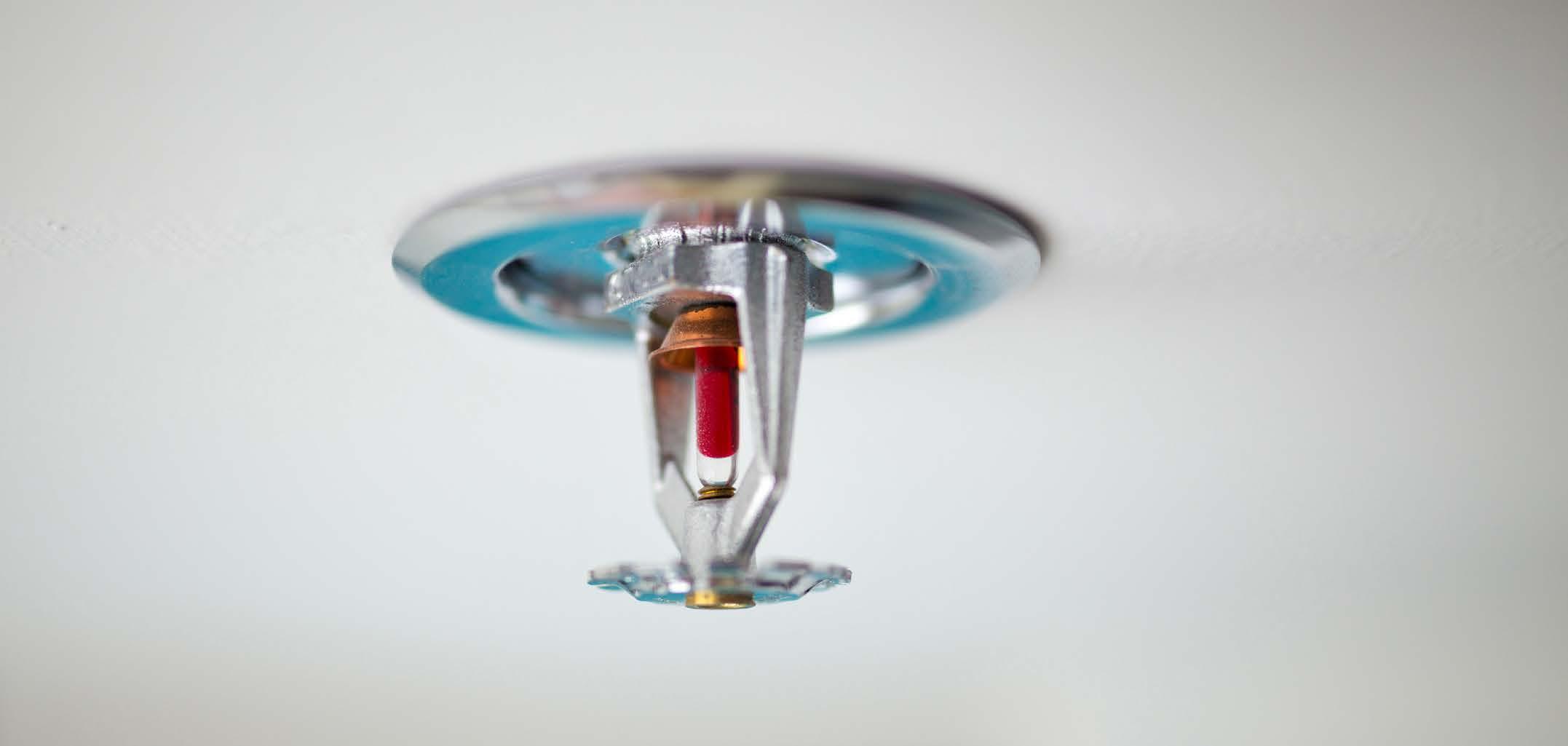
The Department for Levelling Up,Housing and Communities (DLHC) is now hosting a consultation with interested parties given until March 17 to respond.
The move to enhance fire safety in care homes comes a few months after a coroner raised concerns that the lack of a fire suppression system contributed to the deaths of two residents at a care home in Hertfordshire in 2017.
The DLHC said: “Sprinklers provide
another layer of protection to ensure that fire spread is controlled, there is also a secondary benefit to the wellbeing of residents, staff, and their loved ones in knowing there are additional measures in place to provide this.
“Benefits include:
a. reduced risk of fatality or injury during a fire
b. reduced risk of property damage
c. additional time to evacuate through further control on fire spread
d. reduced likelihood for evacuation of compartments beyond the fire affected area
e. reduced likelihood of residents needing to be rehomed
f. increase in wellbeing for residents, staff and families.”
Various research studies commissioned by the government over the past 15 years have concluded that fire suppression systems such as sprinklers would reduce deaths by between 41 and 62 per cent.
Damage to property is estimated to be reduced by between 86 and 91 per cent, the research found.
The DLHC commented: “These benefits to life safety are clearly a significant consideration, we consider sprinklers provide particular benefit for low frequency, high consequence, incidents where there is unexpected early fire spread and delays in evacuation. The addition of sprinklers would provide another layer of protection to control fire and help avoid multi fatality incidents arising from early fire spread.Introducing the sprinkler threshold will deliver life, health and property benefits and provide visible reassurance that the new care home is safe for occupants, owners and other interested parties such as relatives and care providers.”
A transitional period of 6 months before the changes would apply, is proposed, in line with previous changes to the Building Regulations.
42 ISSUE 105 | WWW.CAREANDNURSING-MAGAZINE.CO.UK
FIRE SAFETY / TRANSPORT Photo Credit: iStock


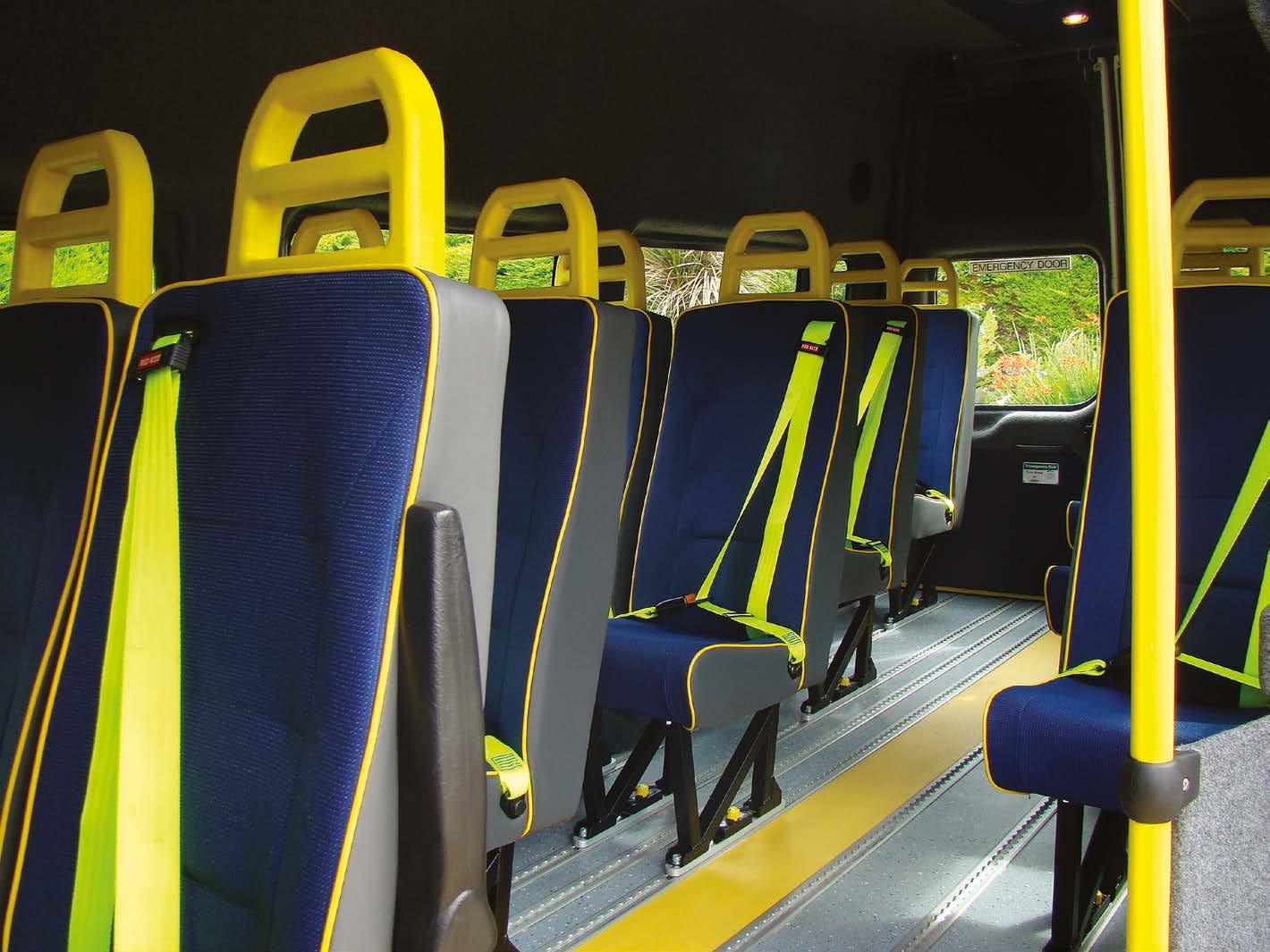
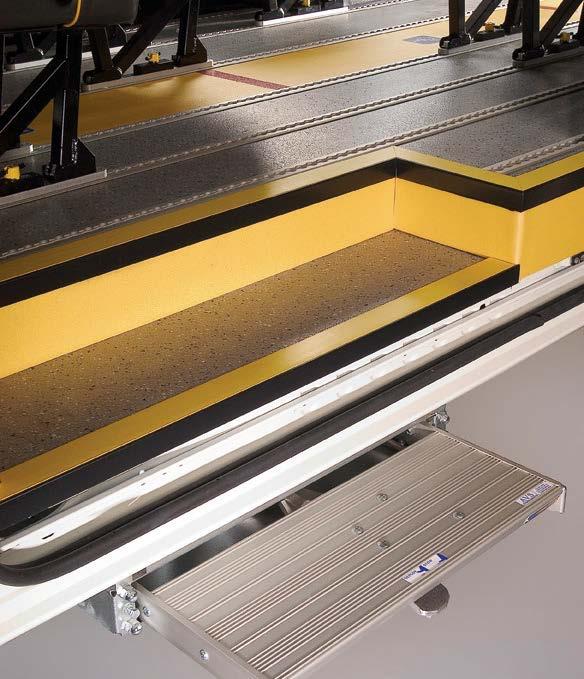






REFURBISHMENT / MOVING & HANDLING VERSATILE SINGLE OR MULTI WHEELCHAIR ACCESSIBLE MINIBUSES • Finance Options to Suit all Budgets • Nationwide Service and Support • 1 - 4 Wheelchair Positions • 5 - 17 Seat Configurations • Spaceflex Flooring System • Powered Wheelchair Tail Lifts • Full Complement of Accessible Options Available VEHICLE CERTIFICATION AGENCY redkite-minibuses.com sales@redkite-minibuses.com Nationwide suppliers of Peugeot & Ford (recommended), and all other leading manufacturers 01202 827678 Call today to arrange a quotation or a demonstration PEUGEOT VAUXHALL CITROËN FORD RENAULT MERCEDES BENZ 3 4 1 2 LIFT 4 Passenger Seats - 4 Wheelchairs 1 2 3 4 1 4 - WHEELCHAIR SPACES
Local IMPaCT service eases pressure on hospitals with unique palliative care model and 24-hour helpline
By Dr Laura Chapman, Palliative Medicine Consultant and Medical Director of Marie Curie Hospice in Liverpool and Trish Bennett, Executive Director of Nursing and Operations at Mersey Care NHS Foundation Trust.
Since the pandemic, there has been an increase in the late diagnosis of life limiting conditions. This has provided added pressure to medical and hospital services already dealing with a backlog of cancelled operations and treatment.
Many of these terminally ill people and their friends and family have found it hard to navigate the myriad of healthcare agencies that they are put in touch with as part of their palliative care journey
And some of the most common issues that have caused them concern have been access to medical care in their own homes and expert advice out of hours and at weekends when their condition deteriorates, symptoms change or pain increases.
Now a new service has launched in Liverpool and South Sefton - following a two- year pilot - that is helping to support people and their families with these issues by offering an all- in- one palliative care service.
FIRST OF ITS KIND SERVICE
The Integrated Mersey Palliative Care Team (IMPaCT) service is one of the first of its kind in the UK and is made up of a group of healthcare professionalsincluding doctors, Community Specialist Palliative care - Clinical Nurse Specialists in Palliative Care, and specialist therapists - who work collaboratively in hospitals, hospices and in the community to deliver high quality, person-centred palliative care.
The new scheme is a partnership between Mersey Care NHS Foundation Trust, Marie Curie Hospice Liverpool, Liverpool University Hospitals NHS Foundation Trust, and Woodlands Hospice. The organisations have also
worked alongside other healthcare organisations, commissioners, and patient representatives to develop the new service.
MULTI AGENCY SUPPORT
As well as providing home visits from specially trained palliative care nurses and doctors the service also provides a 24-hour helpline, staffed by end-of-life care professionals, who can give advice and information to terminally ill people, their families, and carers to provide reassurance and guidance.
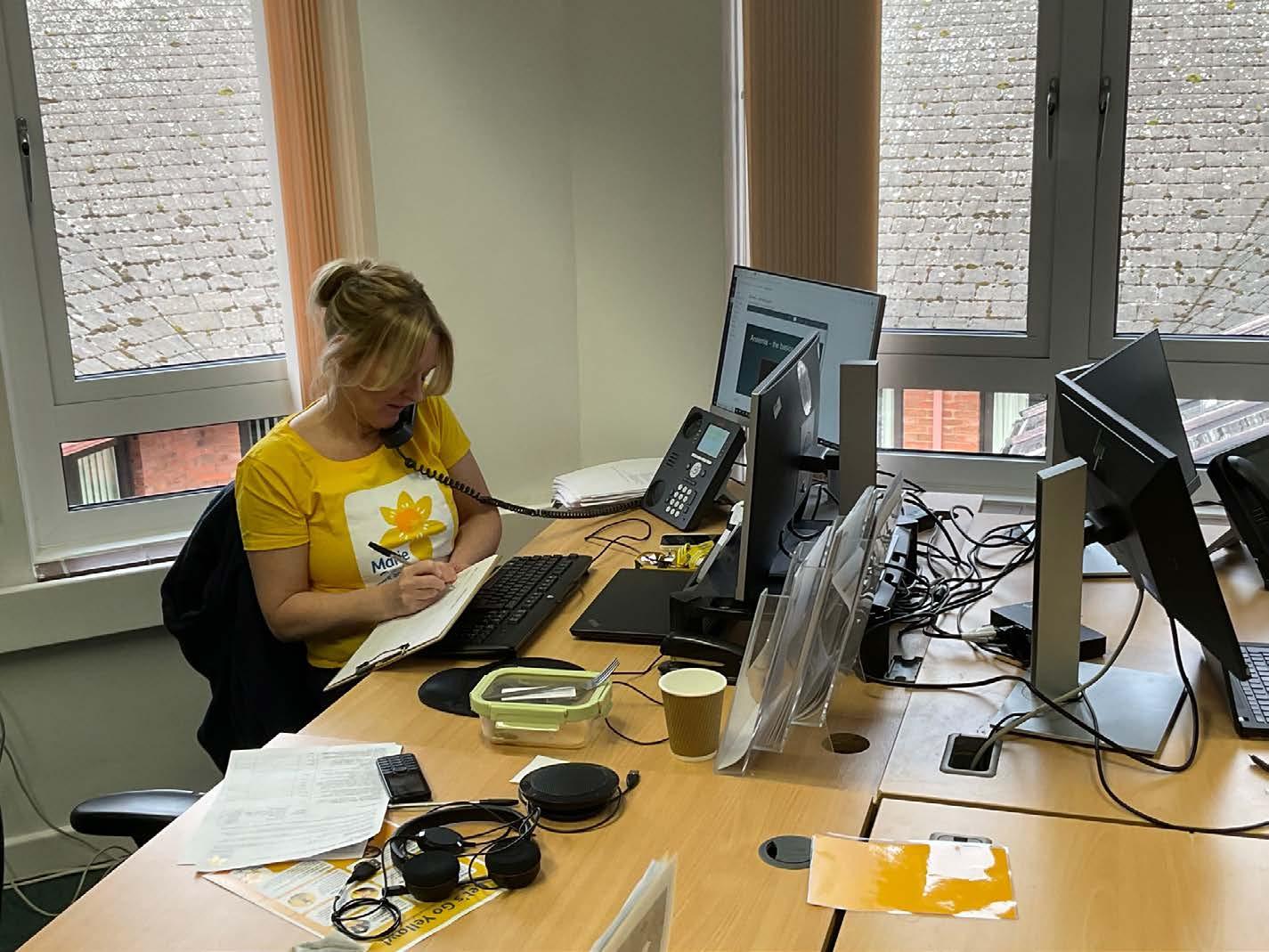
According to Marie Curie research there are over 750,000 hours of unplanned hospital admissions by people being treated at the end of their life.
It is distressing to think that people who are nearing the end of their life
have to contend with overcrowded Emergency Departments, waiting for hours to try and find assistance for complaints that could potentially be treated locally in their home to prevent admission.
The new service – which can support up to 3,000 patients a year - has led to a 44% reduction in the average number of hospital admissions in the last 90 days for people nearing the end of their lives.
ONE STOP SHOP
The IMPaCT model has improved the quality of care for people and increased interaction between agencies and instead of having to contact multiple services for their needs, access to all support and advice is now available via one phone number.
This means people can remain with
44 ISSUE 105 | WWW.CAREANDNURSING-MAGAZINE.CO.UK
IMPACT SERVICE
Picture Credit: Marie Curie
their friends and families at home with a greater chance of dying in their preferred place of care.
It is hoped that the learning from the Impact service could influence other models of care nationwide.
This level of palliative care coordination is not universal with end-oflife provision and services being patchy at best across the country.
FUTURE
Now Marie Curie is recommending that every area of the UK should have a designated 24/7 palliative and end of life care telephone line. This should
“By the time they call us, many have already been passed between multiple agencies and are looking for one single point of access to manage their care. We provide that service to patients.
“They can ring us day or night and ask us for help, advice or even for a chat. Knowing someone on the end of the line is a palliative care expert who understands what they or their family are going through. It makes such a difference to people knowing they can get targeted support from experts in their field with just one phone call.”
Barbara Houghton, Principal Lead for Palliative and end of life care at Mersey
can spend the last weeks of life in their preferred place of care. With the Impact model we ensure that patients who need treatment can access treatment at home reducing unnecessary admission to hospital and A&E attendances.
“This is a time in people’s lives where they feel vulnerable and require support. Working alongside our partners in the acute trusts and local hospices, we’re intending to ensure that patients get the right person with the knowledge and skills to address the patient’s concerns irrespective of when these concerns arise. By getting things right for people at this time it helps them to create
be staffed by experienced palliative care professionals so that people at the end of life and their carers can get the advice, guidance, and support to access local services and medication that they need rather than having to call 999.
Janette Pagan (pictured), a Clinical Nurse Specialist, who works at the IMPaCT South hub based at the Marie Curie Hospice in Liverpool – said the service was making a real difference in the community.

“We are giving some stability back into people’s lives,” she said.
Care, said:
“Our Community Clinical Nurse Specialists in Palliative Care are system leaders in the IMPACT model and co-ordinate a patient’s journey with all of our core care teams in community settings including mental health and secure settings. They’re experts in their field and in forming relationships with patients, carers and families at the most difficult times of their lives.
“Having community lead palliative care services ensures that unnecessary admissions are avoided and patients
coping mechanisms for future events.
“We also support those people who are significant to the patient, who are affected by what’s happening to their loved one.
“Our aim is to ensure patients receive the best possible care and support to improve their quality of life for as long as possible and that we work with their wishes and they are surrounded by the people they want to be with.”
For more information about the Impact scheme visit https://impactmersey.org.uk
45 ISSUE 105 | WWW.CAREANDNURSING-MAGAZINE.CO.UK
IMPACT SERVICE
Janette Pagan Picture Credit: Marie Curie
What to consider when creating health and wellbeing plans in the care home
Elzbieta Walijewska-Aglan, Health and Wellbeing Specialist and Alice Mitroi, Home Manager at Royal Alfred Seafarers’ Society, discuss why a one size fits all approach isn’t practical when providing wellbeing support to residents
The UK’s ageing population is placing increasing demands on social care providers, who have traditionally offered care and support for physical health issues. However increasingly providers are also focusing on offering mental health and wellbeing support, especially after years of disruption due to the COVID-19 pandemic.
Coronavirus hit care homes hard, with the mental wellbeing of residents and staff suffering through social isolation, loneliness, and lost access to the outside world. It prompted the Royal Alfred to assemble a dedicated Health and Wellbeing team that focuses on tailored mental support and care for every resident.
One size doesn’t fit all when it comes to care and especially when it comes to mood support and wellbeing. Creating individual wellbeing programmes for each resident is imperative to personcentred care, with every programme promoting a person-centred approach to care, where residents are treated as individuals.
Here are the main points care home managers and staff need to consider when developing tailored, individualised care plans:
Always include residents and their families in care planning
A uniform, unvarying approach to care is neither workable nor caring, particularly when it comes to emotional wellbeing. Our bespoke route is hallmarked from the outset by encouraging residents and their relatives to be involved in the care planning process. It means that all activities and support are relevant and appropriate for them and that they get the most from it.
We suggest conducting a survey with residents to determine what they require and, from there, develop a plan to meet their personalised care and wellbeing needs.
Understand residents’ individual needs
By learning more about someone’s personal history and background, carers
can better cater to their individual needs in care while allowing them to feel like they are still living their own life with some degree of independence.
The Royal Alfred specialises in providing care for former seafarers and their dependents and so many of our residents have survived one of the world’s ten most hazardous occupations – one that often brings a poor social life, boring routines, and extremely physically tough working conditions.
All this can cause both physical and psychological problems on retirement, when former mariners may feel lost and disconnected from family, friends, and wider society. Knowing where to find like-minded companionship with people with shared experiences, plus psychological support, is invariably difficult.
Research indicates that half of the seafaring community has needs that niche charities can’t meet, given that few occupational pension schemes cater for those with a maritime background. A tailored approach that takes cognisance of this lifestyle is therefore essential. Moreover, many residents will have dementia and other cognitive conditions, so applying every exercise or activity to everyone is impossible. People obtain fulfilment and enjoyment from many different activities – there is no one pursuit that all residents will value the same. It all highlights how different each resident is, reinforcing the importance of devising a customised, personal focus for any wellbeing programme.
Spend time getting to know residents
Obviously, the more familiar you are with a resident’s personal history and life, the better you can cater to their individual needs while allowing them as much freedom and autonomy as possible.
Don’t try to know everything at once. Make it a cumulative process. You and your team will discover much more as you go than by rushing things.
Carers must always listen to residents
– they come first, and the team is there to meet their needs and wishes. It is essential for those creating the plans to have deep knowledge of the care sector and be familiar with the industry or occupation residents come from, to fully gauge their priorities and concerns.
Build out activities
Critical to this is promoting meaningful physical and mental activities. Any mind is best kept healthy by keeping it stimulated, engaged and active, which is why we offer our residents a wide choice of enriching pursuits and encourage them to participate in several every day.
This variety is vital, as people find enjoyment in different activities; there’s nothing that all residents will value equally. Speak to them and find out what they would enjoy doing. Make sure the activities on offer are of genuine interest to them and also varied enough to suit individuals with physical or learning difficulties.
For example, we have days out specifically for our residents who aren’t mobile – as they are all in wheelchairs, being together on a day out specifically designed for their needs ensures they feel understood, and their individual needs are respected.
Opportunities to get out should always be among the menu of options, with our residents enriched by trips to Wimbledon and Buckingham Palace, among many other exciting jaunts.
The most effective and universal tool is music, which residents always respond well to, and it really boosts their mental wellbeing.
Continuous innovation
The overriding principle of personal plans is continuous innovation. Never stop exploring what suits residents best as new people arrive and existing ones’ tastes, interests, and care needs change.
To find out more about the work of The Royal Alfred Seafarers’ Society visit the charity’s website (www. royalalfredseafarers.co.uk). To keep up to date with the latest news from the Society, follow and like the official Society Facebook pages.
46 ISSUE 105 | WWW.CAREANDNURSING-MAGAZINE.CO.UK
HEALTH & WELLBEING
CURRENT CATERING CHALLENGES...
It’s hard to recruit and keep kitchen staff
Agency staff are so expensive and time consuming to train
Cooking meals for all our residents dietary needs is a challenge PARTNER
WITH APETITO FOR...
A simple system that needs half the number of staff, and no trained chefs
Delicious, great quality food and guaranteed nutrition, developed by our in-house Chefs, Dieticians and Nutritionists

Over 200 meals to suit all dietary requirements, including our world leading Texture Modified range
SCAN BELOW TO DISCOVER HOW YOU CAN TRANSFORM MEALTIMES FOR YOUR RESIDENTS

www.apetito.link/CNE
